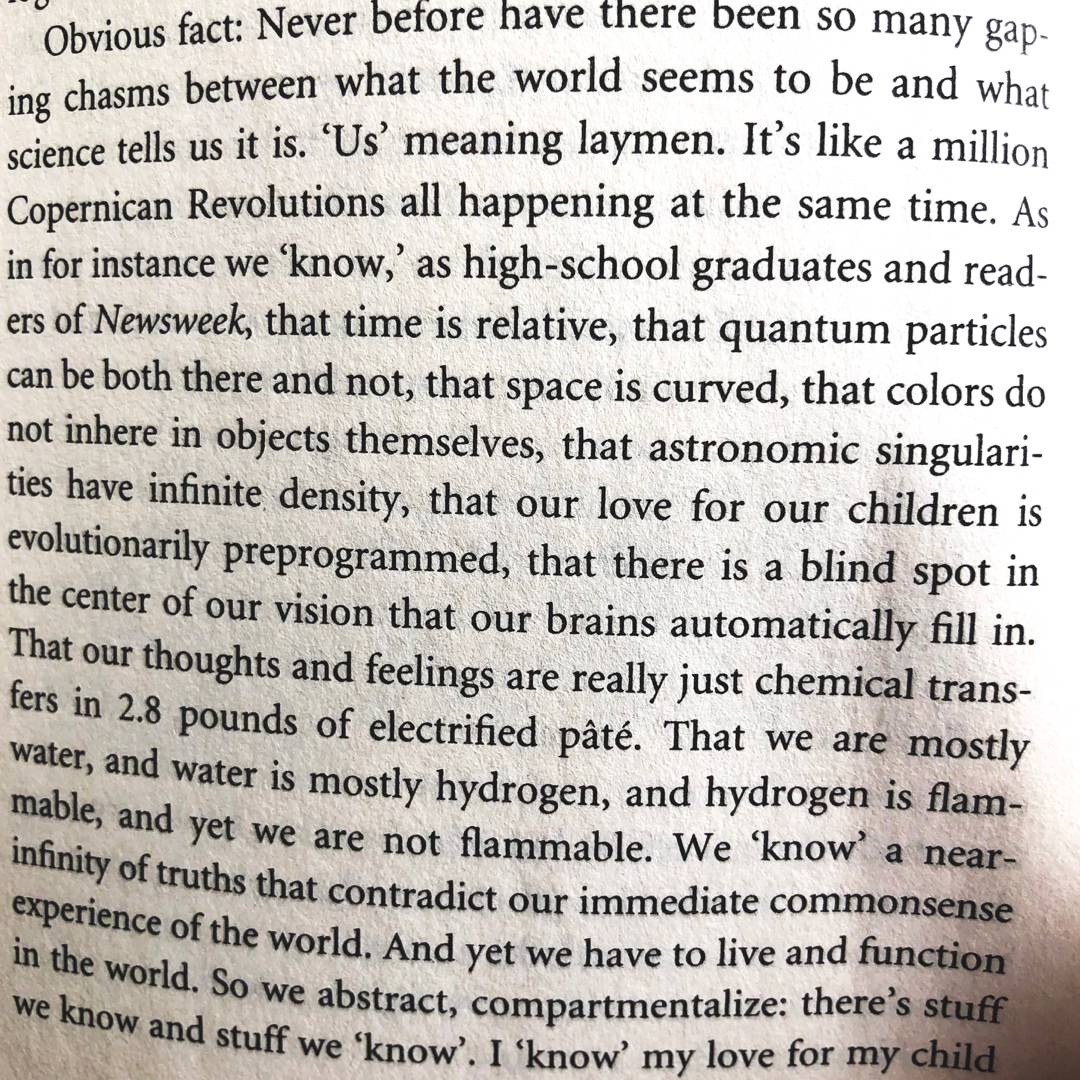
That our thoughts and feelings are really just chemical transfers in 2.8 pounds of electrified pâté.

That our thoughts and feelings are really just chemical transfers in 2.8 pounds of electrified pâté.
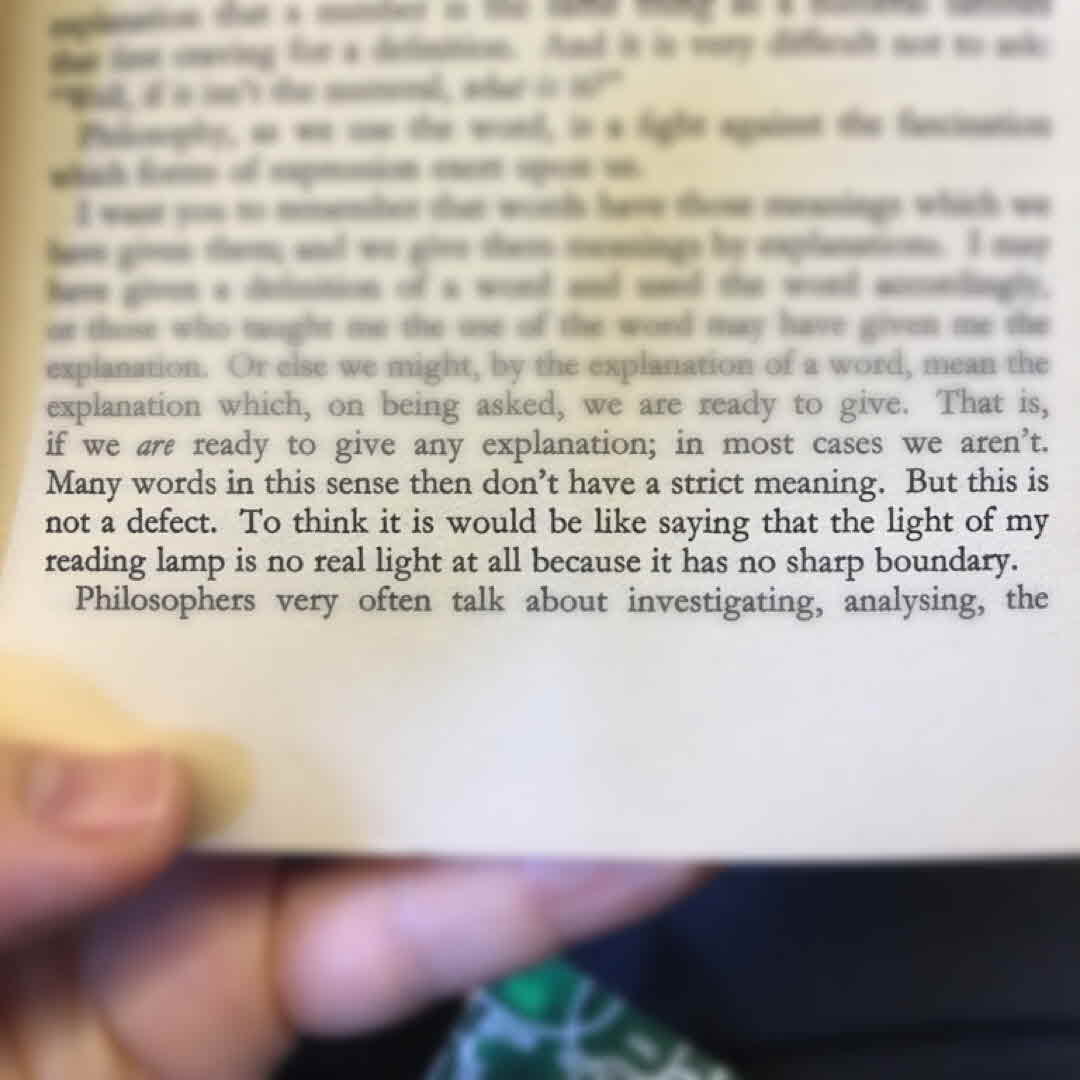
Many words in this sense then don't have a strict meaning. But this is not a defect. To think it is would be like saying that the light of my reading lamp is no real light at all because it has no sharp boundary.
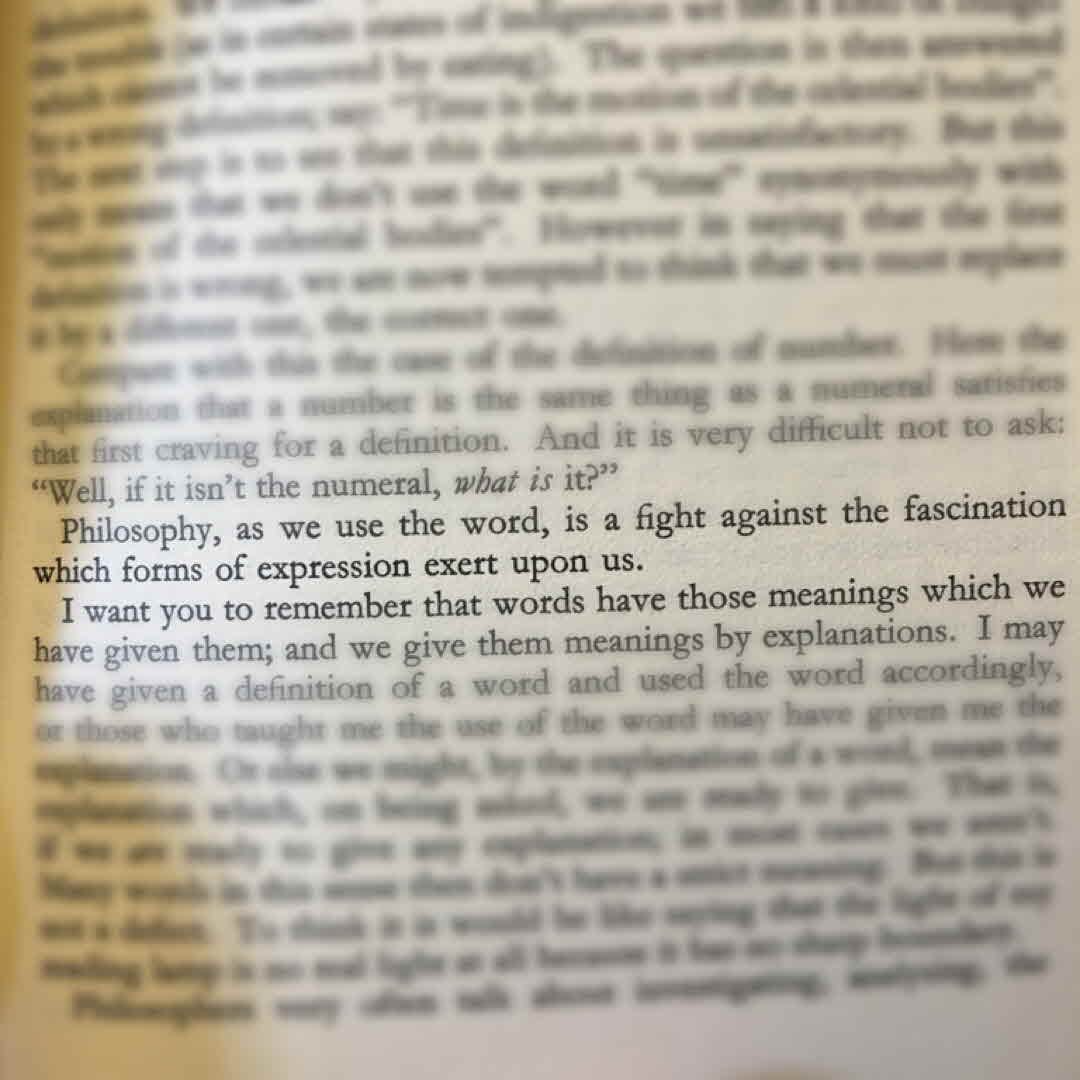
Philosophy, as we use the word, is a fight against the fascination which forms of expression exert upon us.
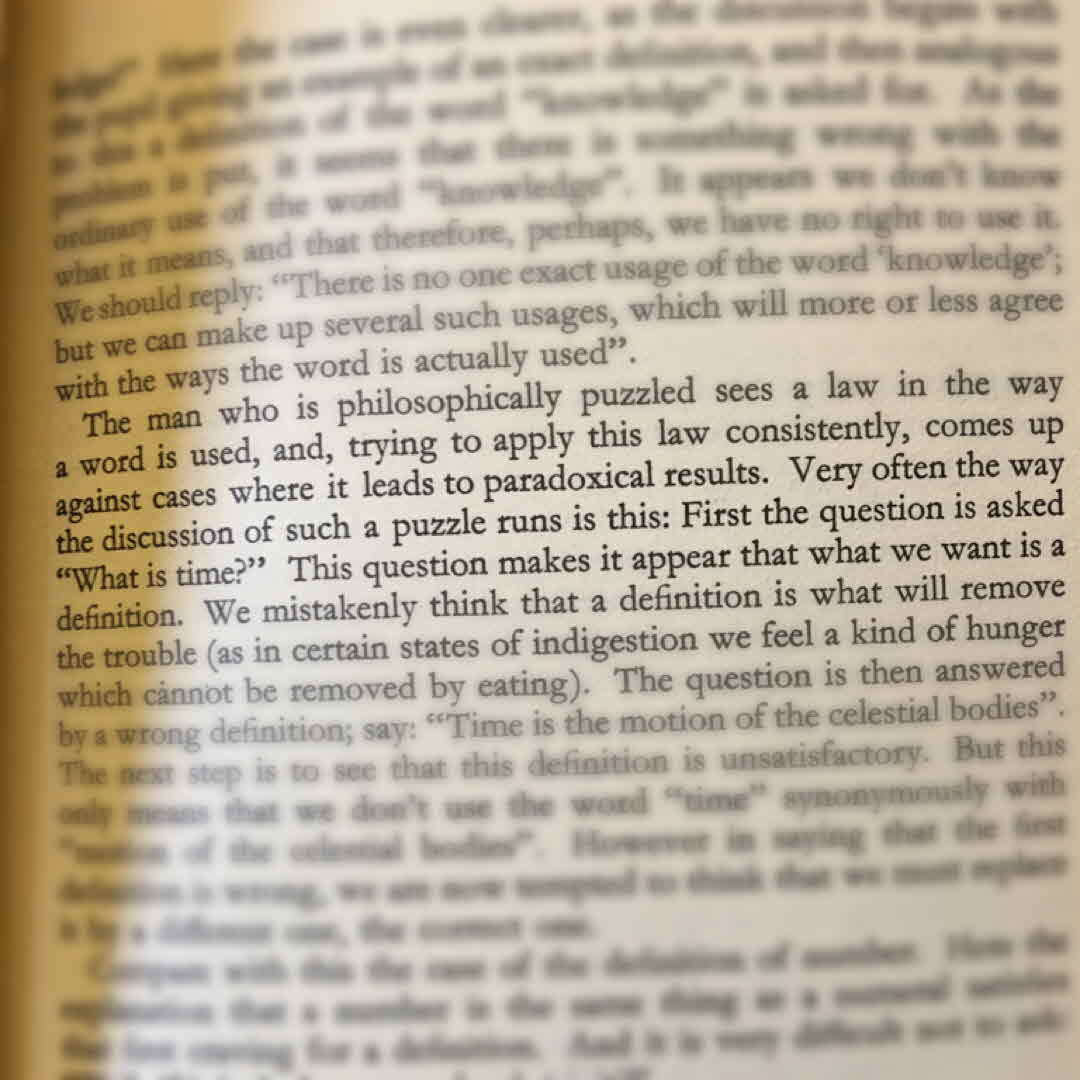
The man who is philosophically puzzled sees a law in the way a word is used, and, trying to apply this law consistently, comes up against cases where it leads to paradoxical results
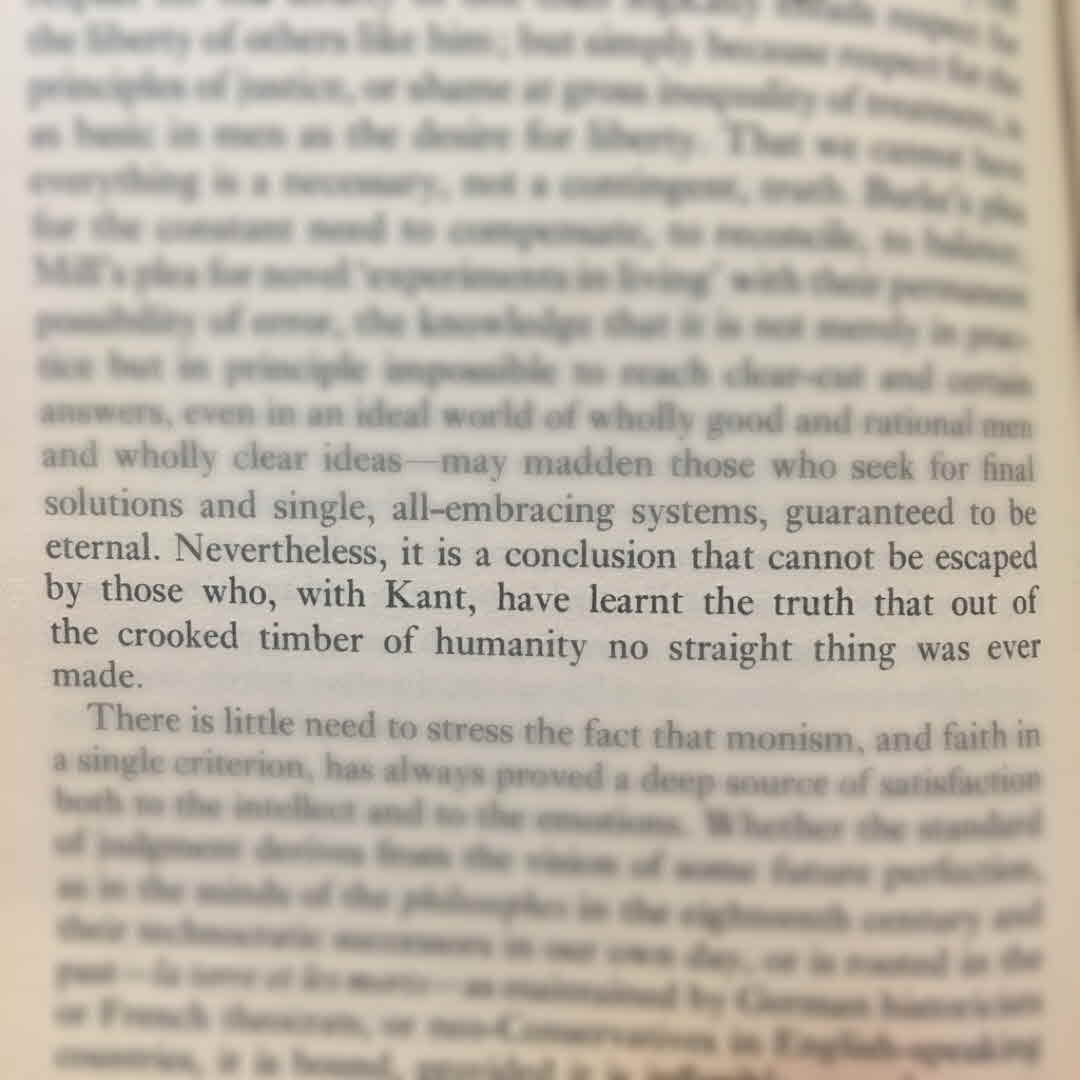
Nevertheless, it is a conclusion that cannot be escaped by those who, with Kant, have learnt the truth that out of the crooked timber of humanity no straight thing was ever made.
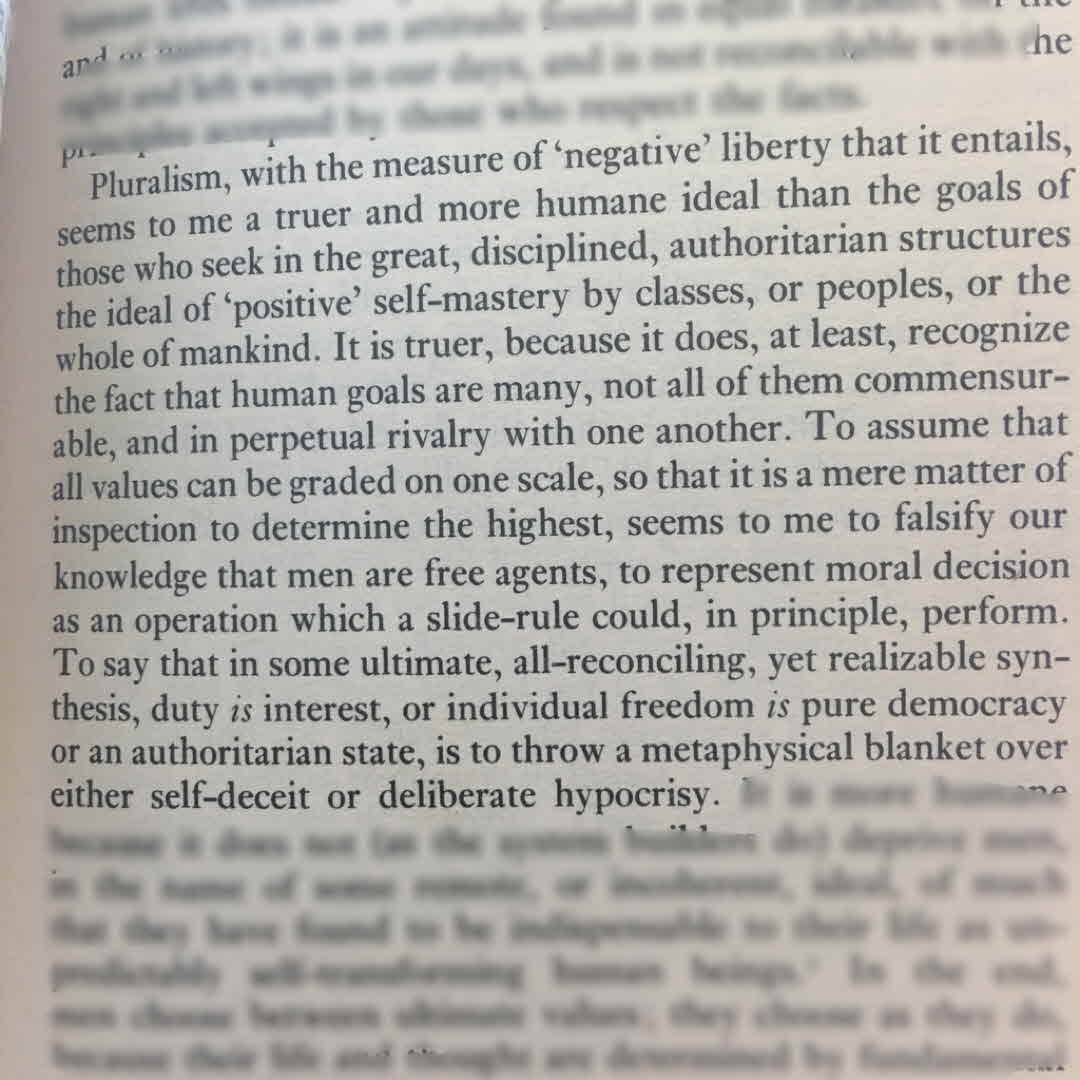
Pluralism, with the measure of 'negative' liberty that it entails, seems to me are truer and more humane ideal than the goals of those who seek in the great, disciplined, authoritarian structures the idea of 'positive' self-mastery by classes, or peoples, or the whole of mankind.
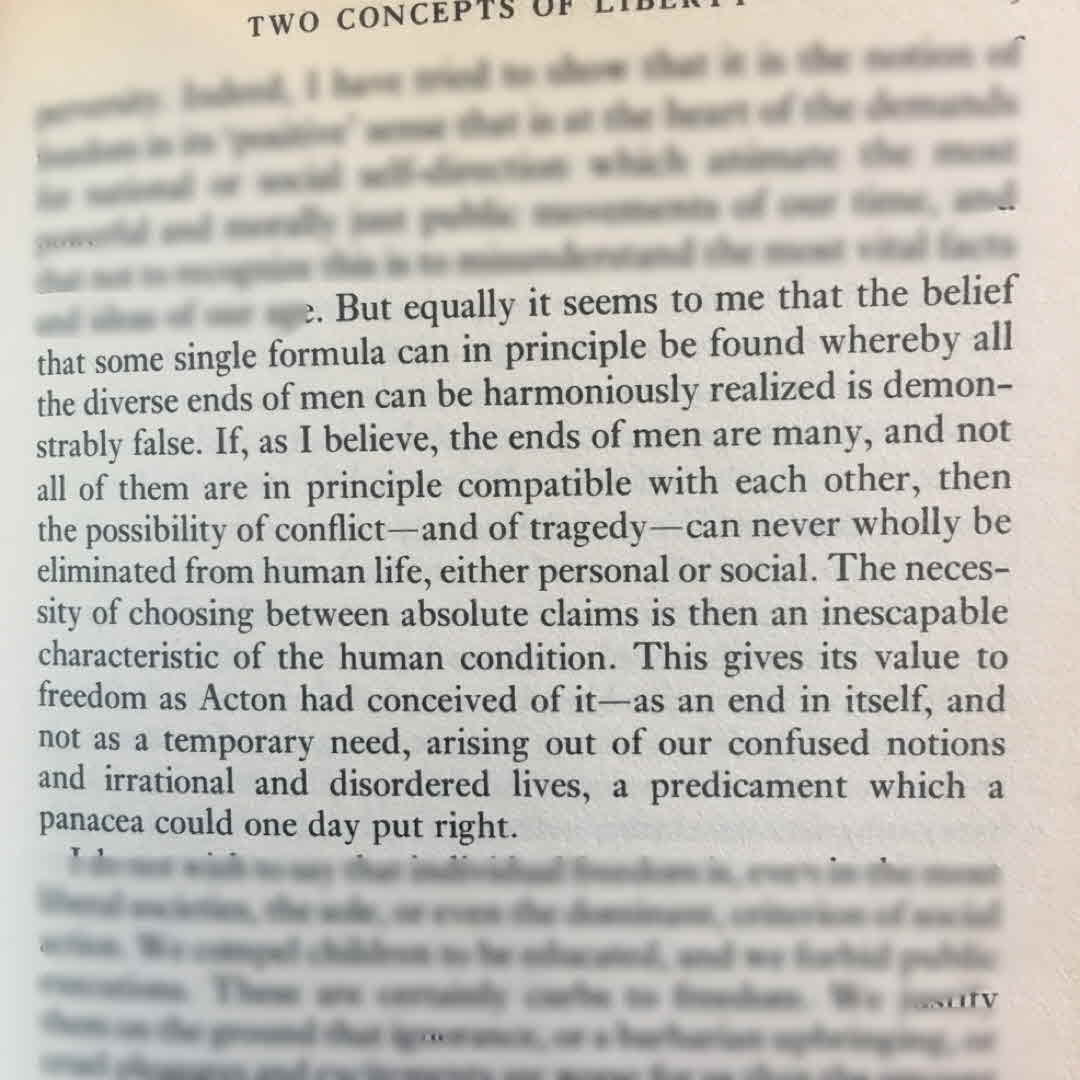
If, as I believe, the ends of men are many, and not all of them are in principle compatible with each other, then the possibility of conflict – and of tragedy – can never wholly be eliminated from human life, either personal or social.
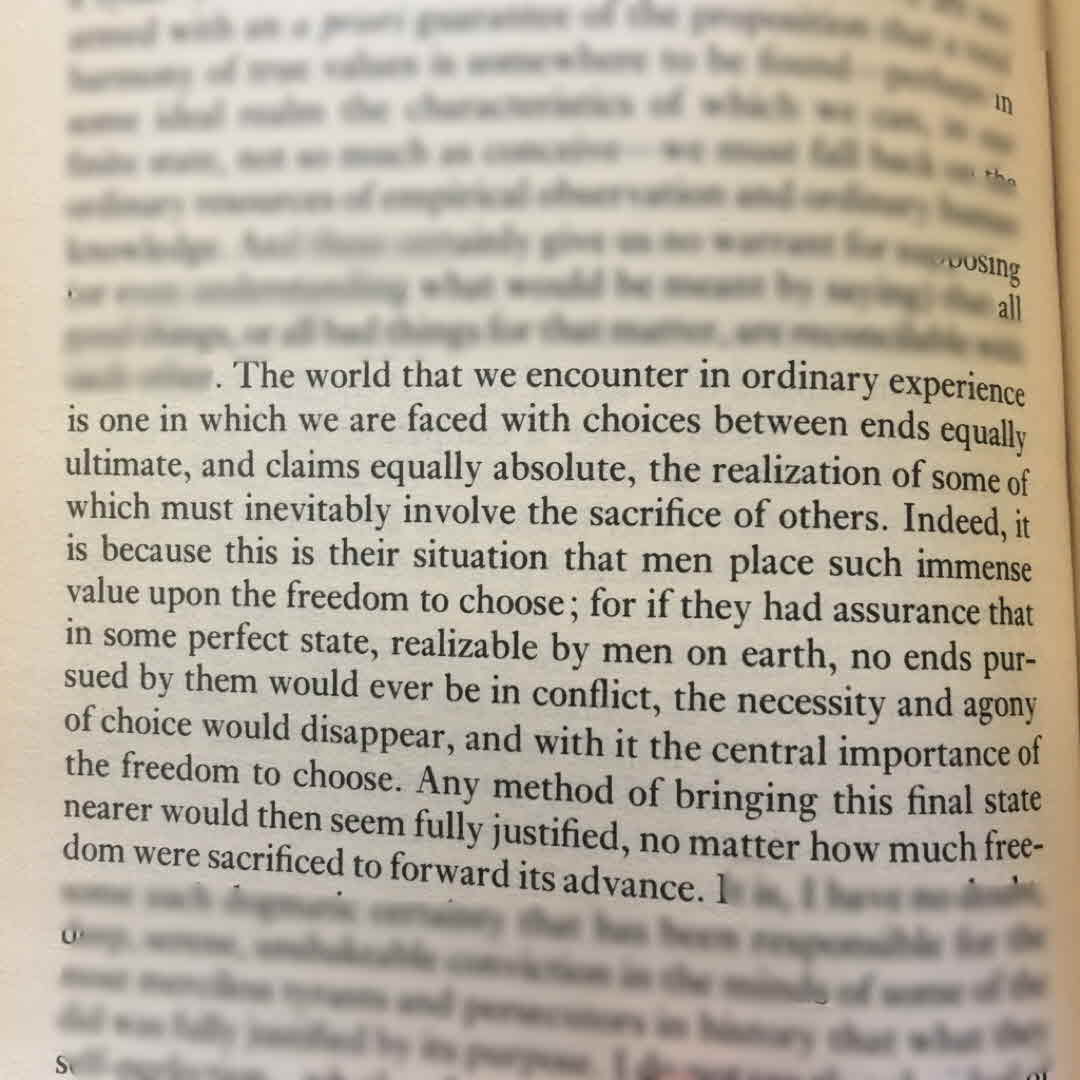
... for if they had assurance that in some perfect state, realisable by men on earth, no ends pursued by them would ever be in the conflict, the necessity and agony of choice would disappear, and with that the central importance of the freedom to choose.
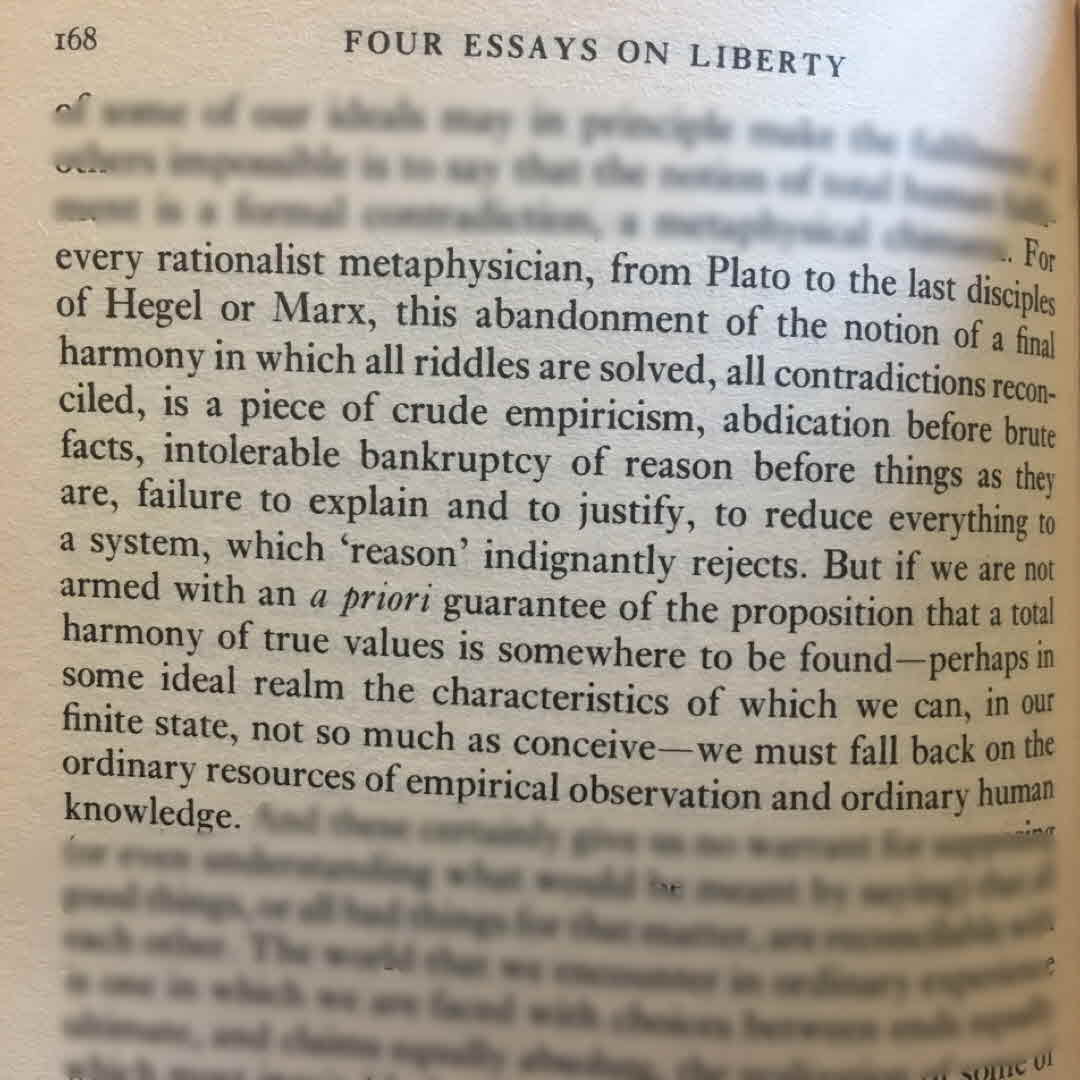
But if we are not armed with an a priori guarantee of the proposition that a total harmony of true values is somewhere to be found ... we must fall back on the ordinary resources of empirical observation and ordinary human knowledge.
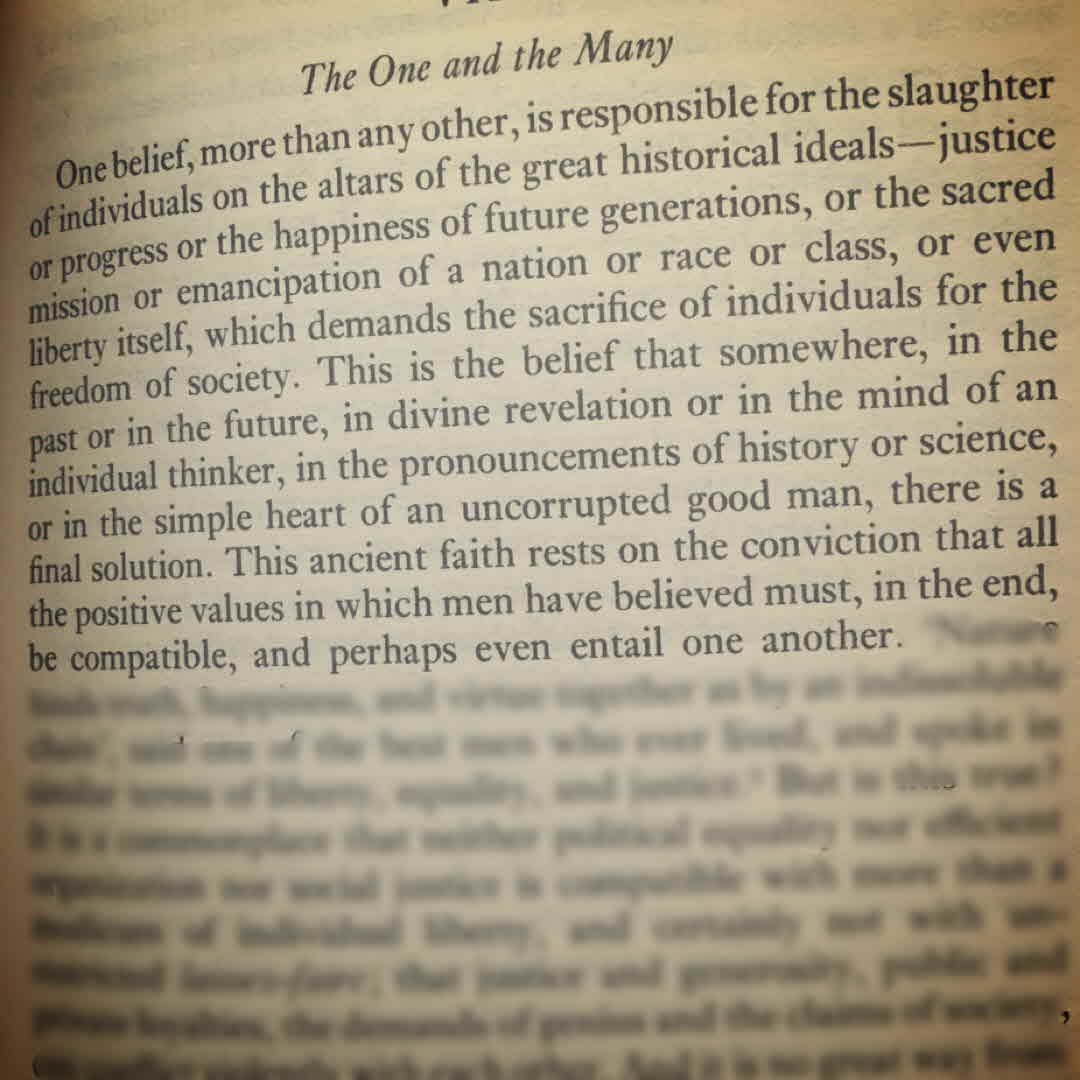
This is the belief that somewhere, in the past or in the future, in divine revelation or in the mind of an individual thinker, in the pronouncements of history or science, or in the simple heart of an uncorrupted good man, there is a final solution.
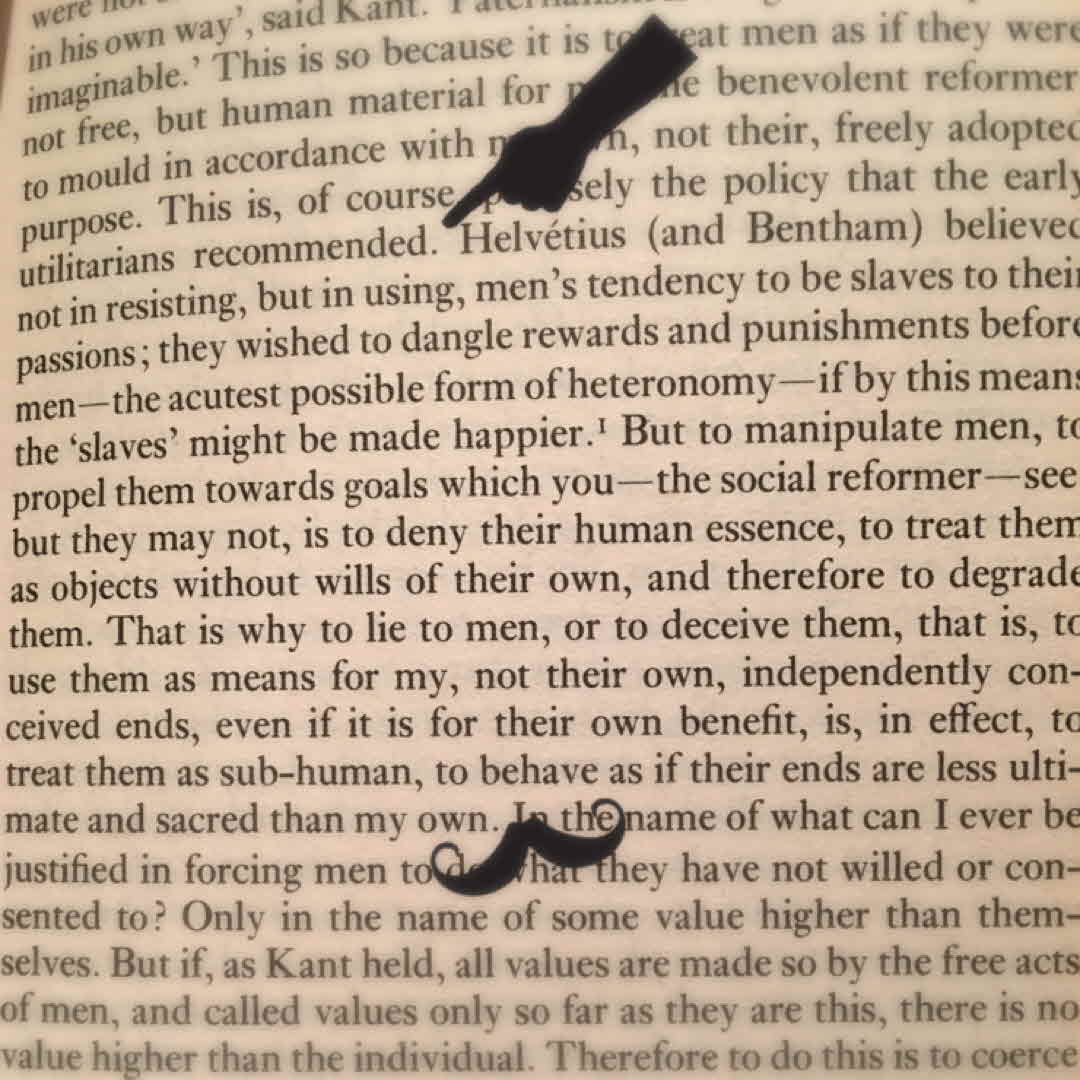
Helvétius (and Bentham) believed not in resisting, but in using, men's tendency to be slaves to their passions; they wished to dangle rewards and punishments before man – the acutest possible form of heteronomy – if by this means the 'slaves' might be made happier.
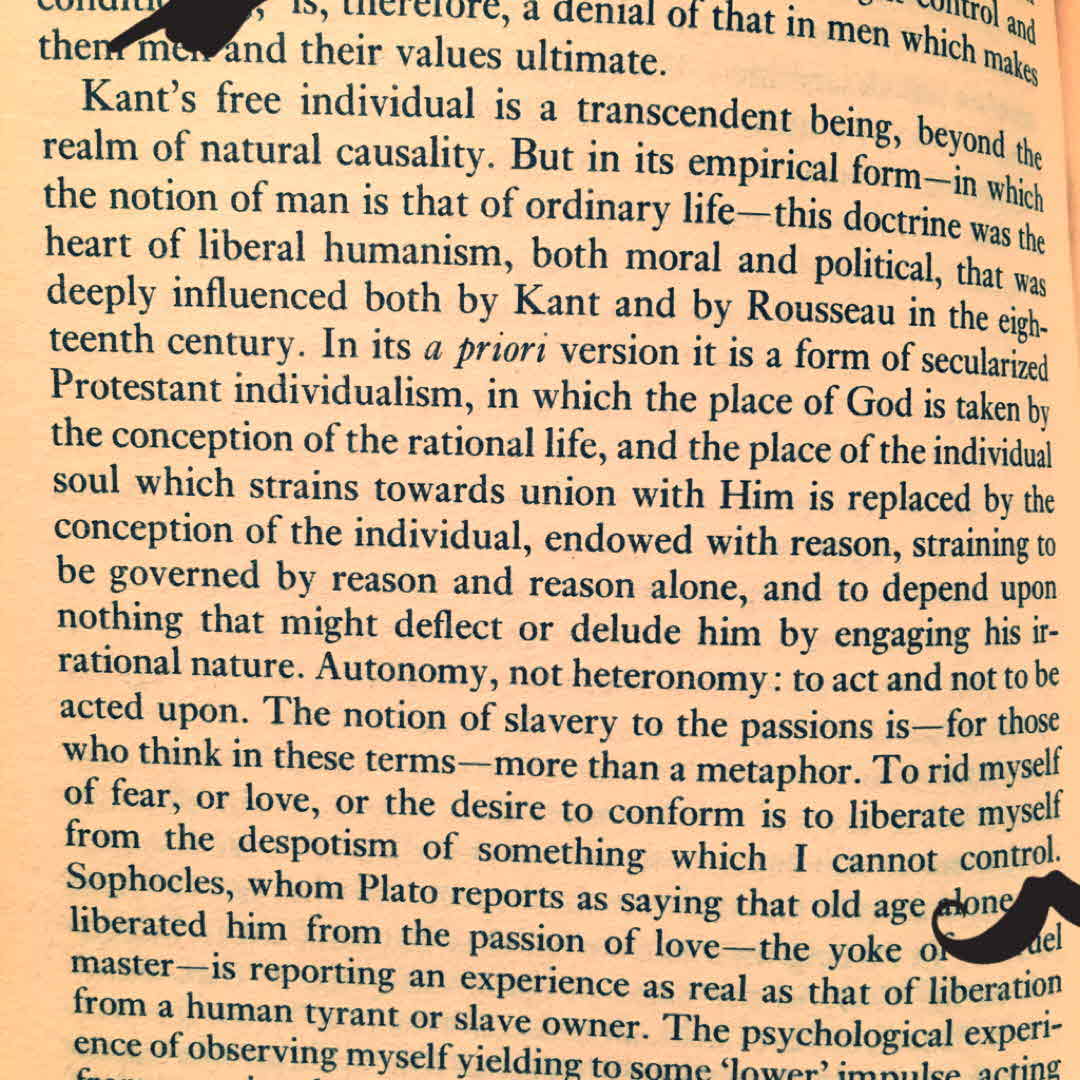
Autonomy, not heteronomy: to act and not to be acted upon. The notion of slavery to the passions is – for those who think in these terms – more than a metaphor. To rid myself of fear, or love, or the desire to conform is to liberate myself from the despotism of something which I cannot control.
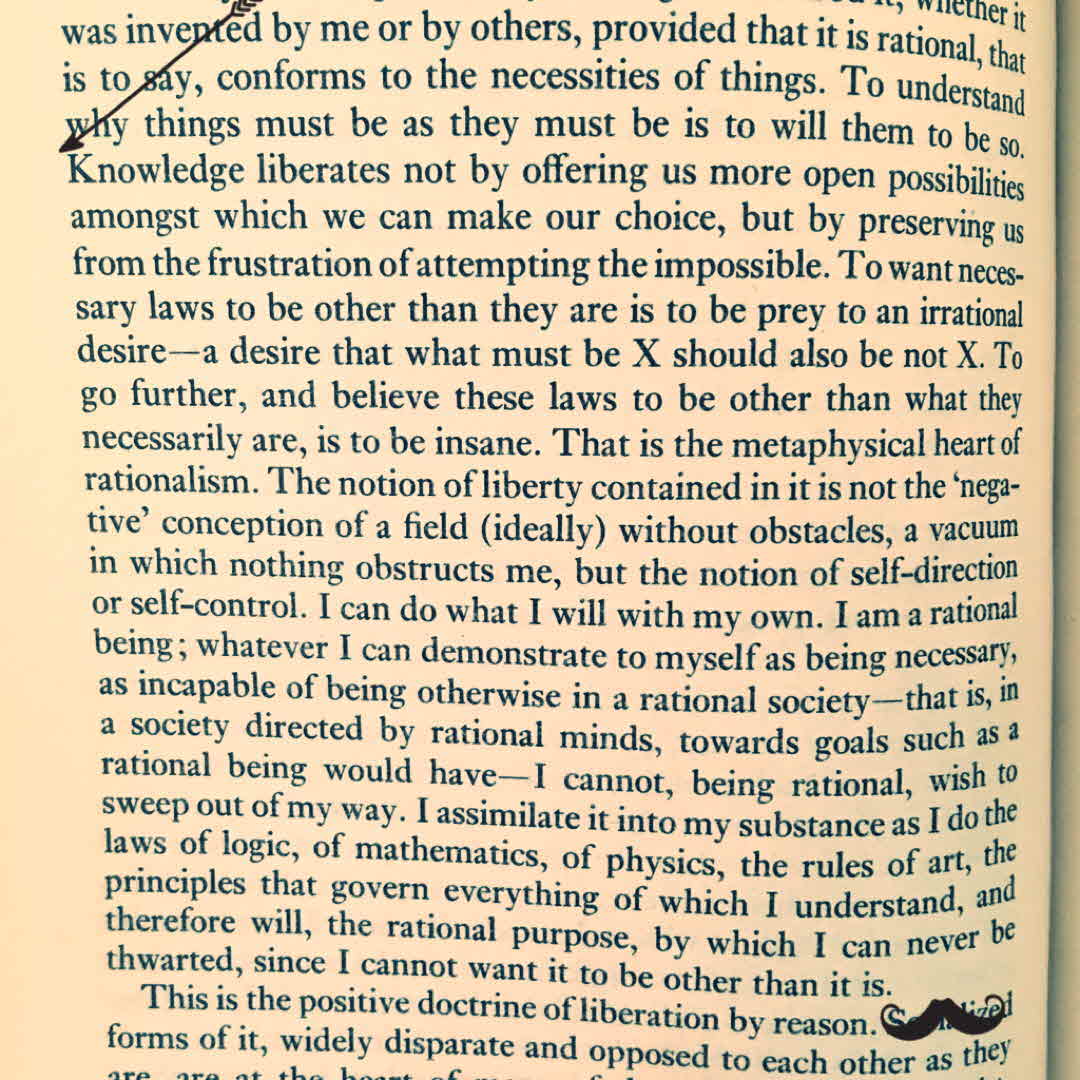
Knowledge liberates not by offering us more open possibilities amongst which we can make our choice, but by preserving us from the frustration of attempting the impossible. To want necessary laws to be other than they are is to be prey to an irrational desire...
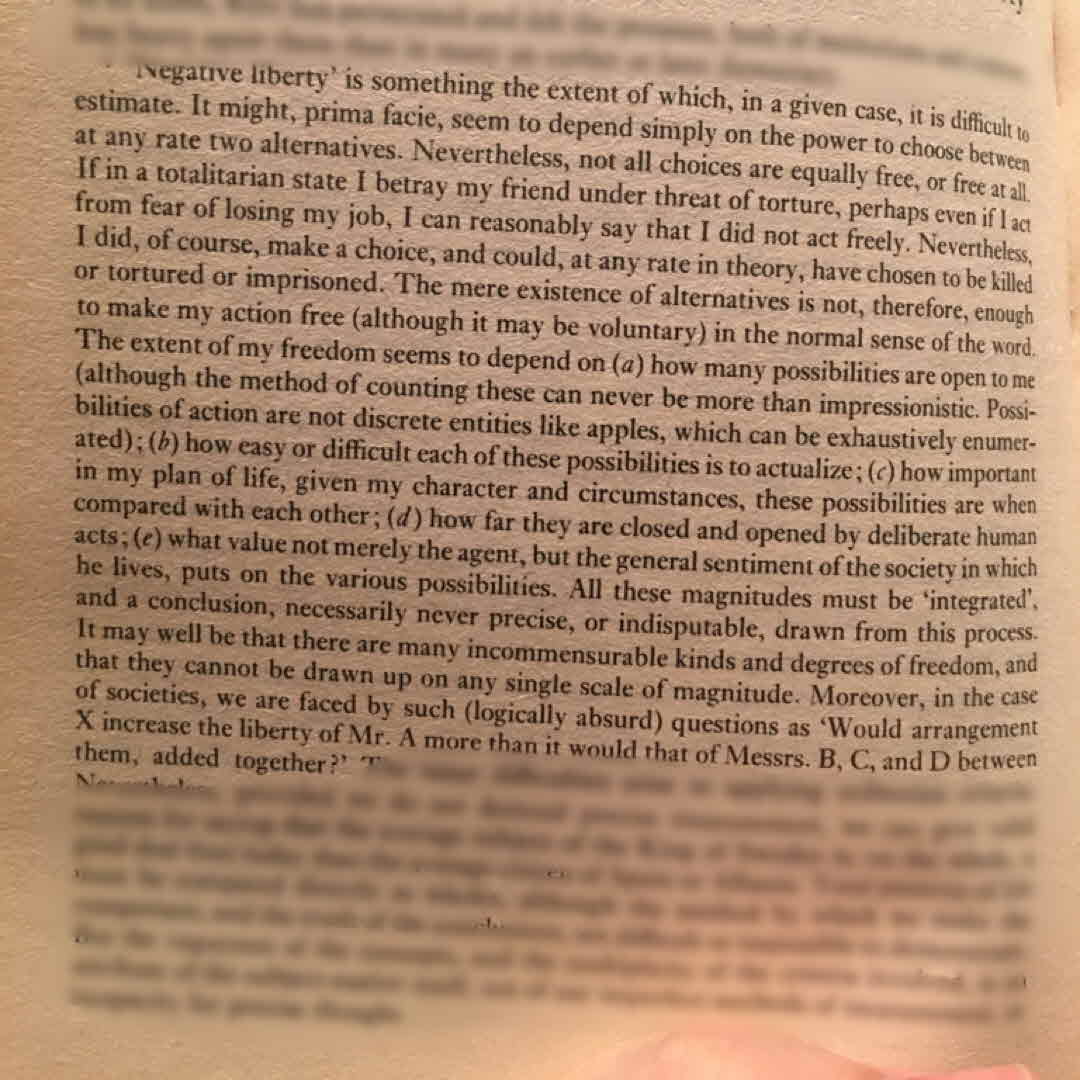
The extent of my freedom seems to depend on (a) how many possibilities are open to me…; (b) how easy or difficult each of these possibilities is it to actualise; (c) how important in my plan of life ...; (d) how far they are closed and open by deliberate human acts; (e) [value attributed to each]
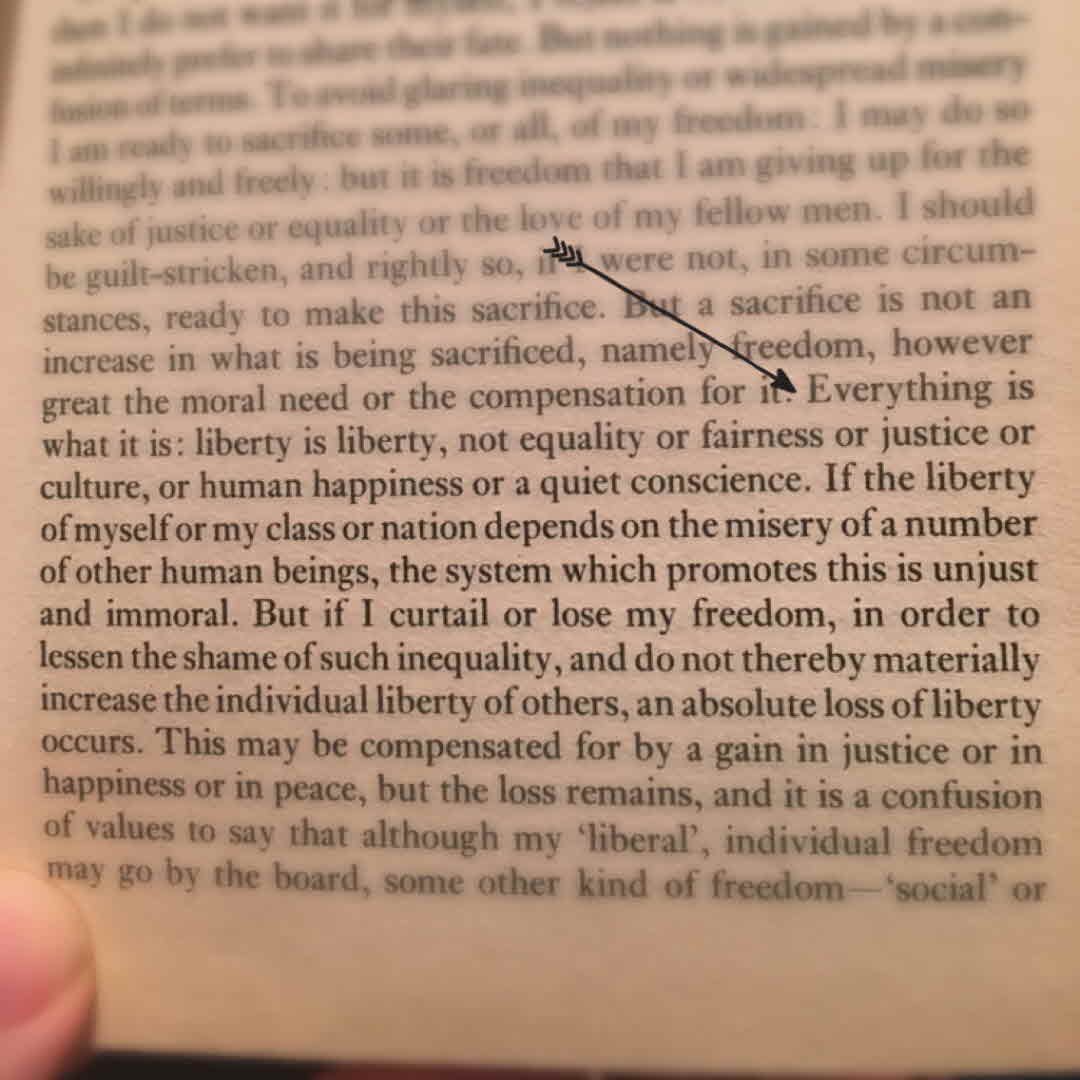
Everything is what it is: liberty is liberty, not equality or fairness or justice or culture, or human happiness or a quiet conscience. If the liberty of myself or in my class or nation depends on the misery of a number of other human beings, the system which promotes this is unjust and immoral.
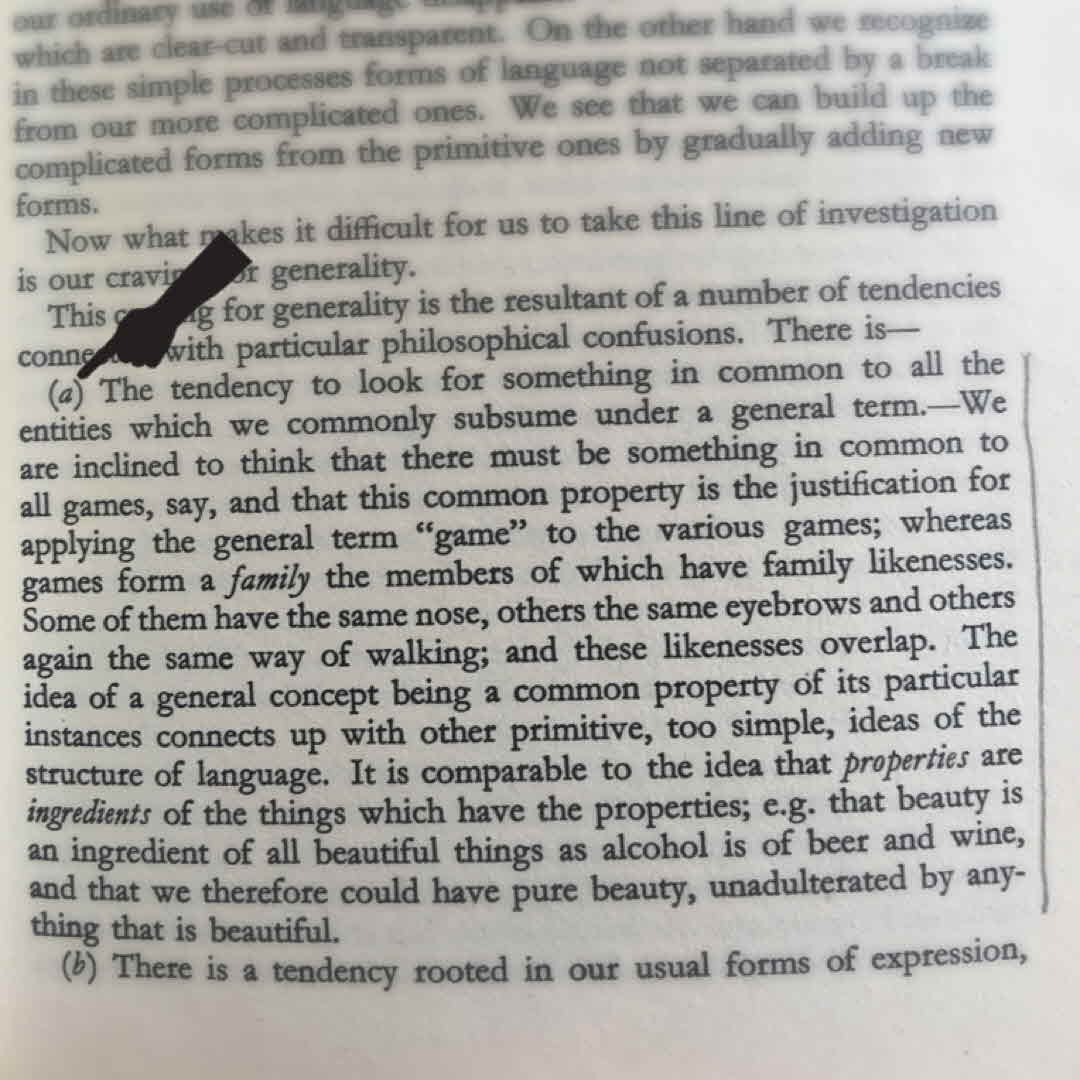
The idea of a general concept being a common property of its particular instances connects up with other primitive, too simple, ideas of the structure of the language. It is comparable to the idea that properties are ingredients of the things which have their properties...
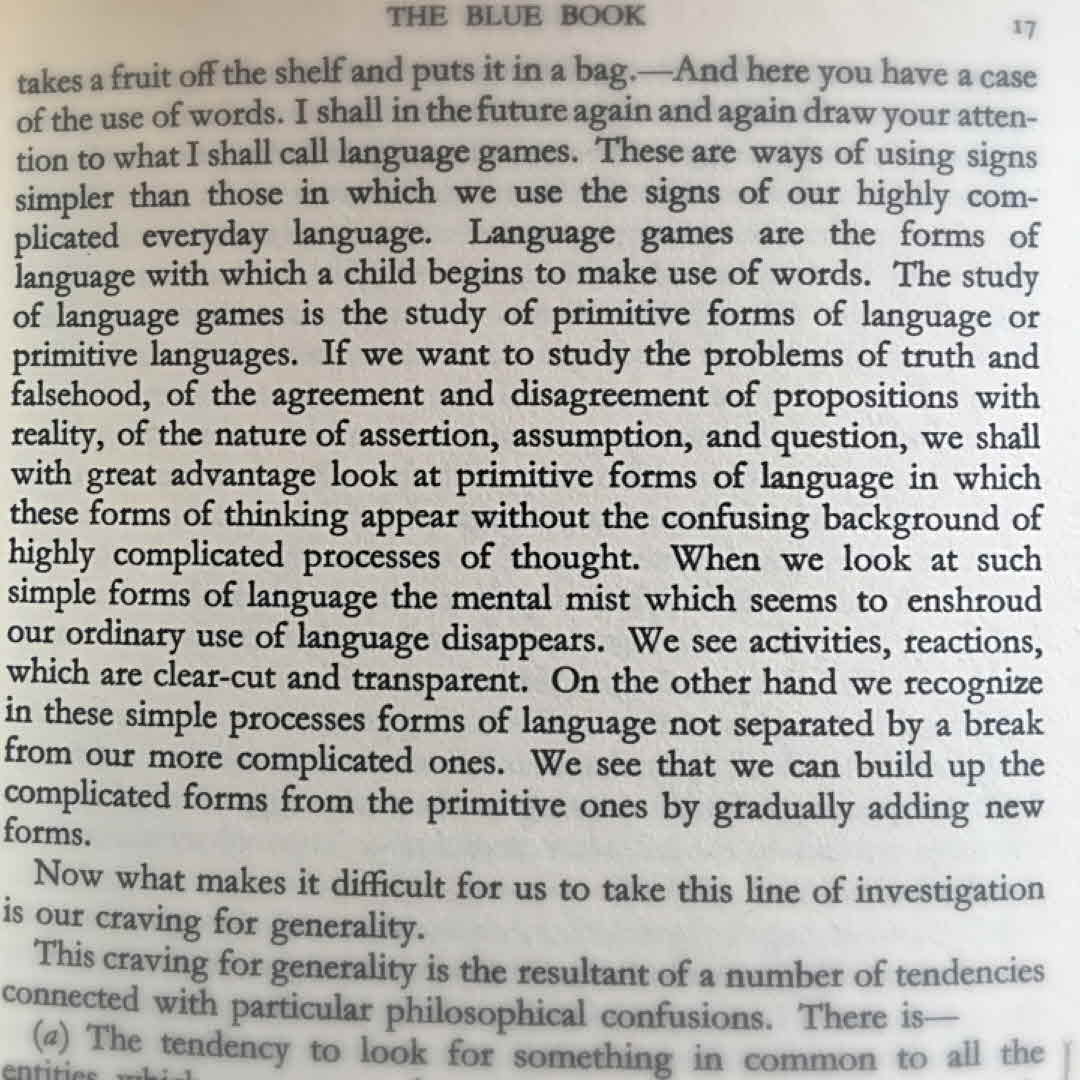
If we want to study the problems of truth and falsehood, of the agreement and disagreement of propositions with reality, of the nature of the assertion, assumptions, and question, we shall with great advantage look at primitive forms of language in which these forms of thinking appear ...
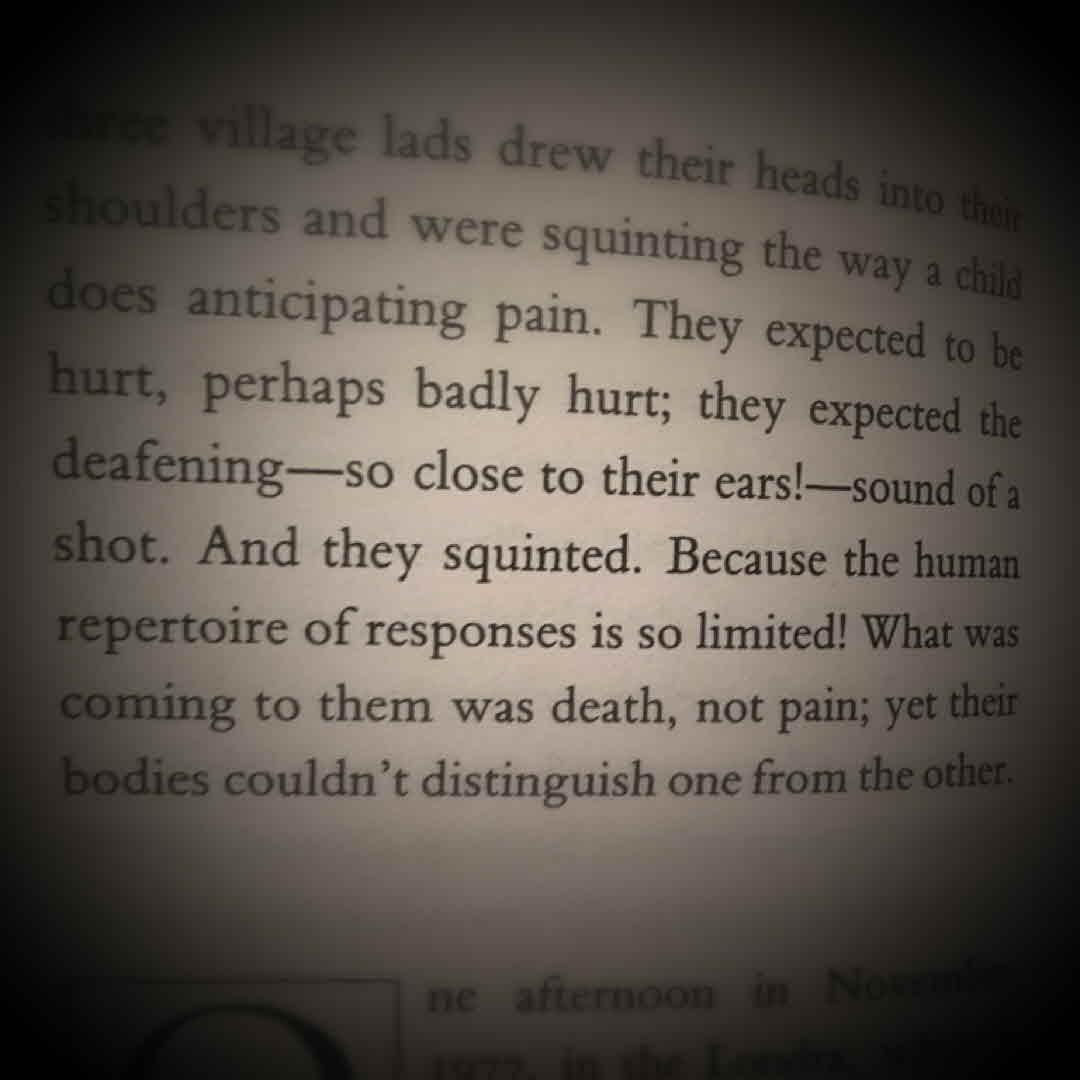
They expected to be hurt, perhaps badly hurt; they expected the deafening – so close to their ears! – sound of a shot. And they squinted. Because the human repertoire of responses is so limited! What was coming to them was death, not pain; yet their bodies couldn't distinguish one from the other.
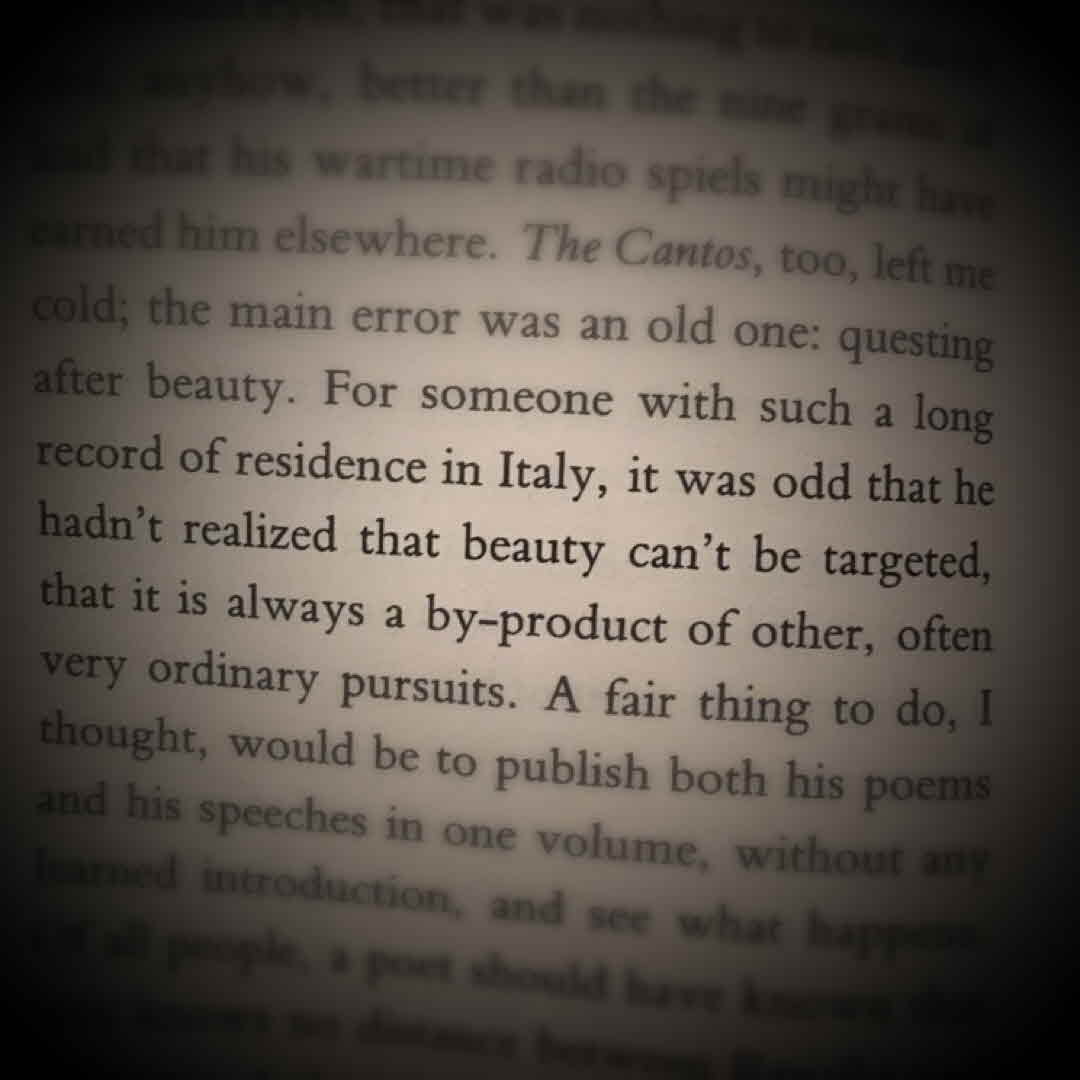
For someone with such a long record of residence in Italy, it was odd that he hadn't realised that beauty can't be targeted, that it is always a by-product of other, often very ordinary pursuits.
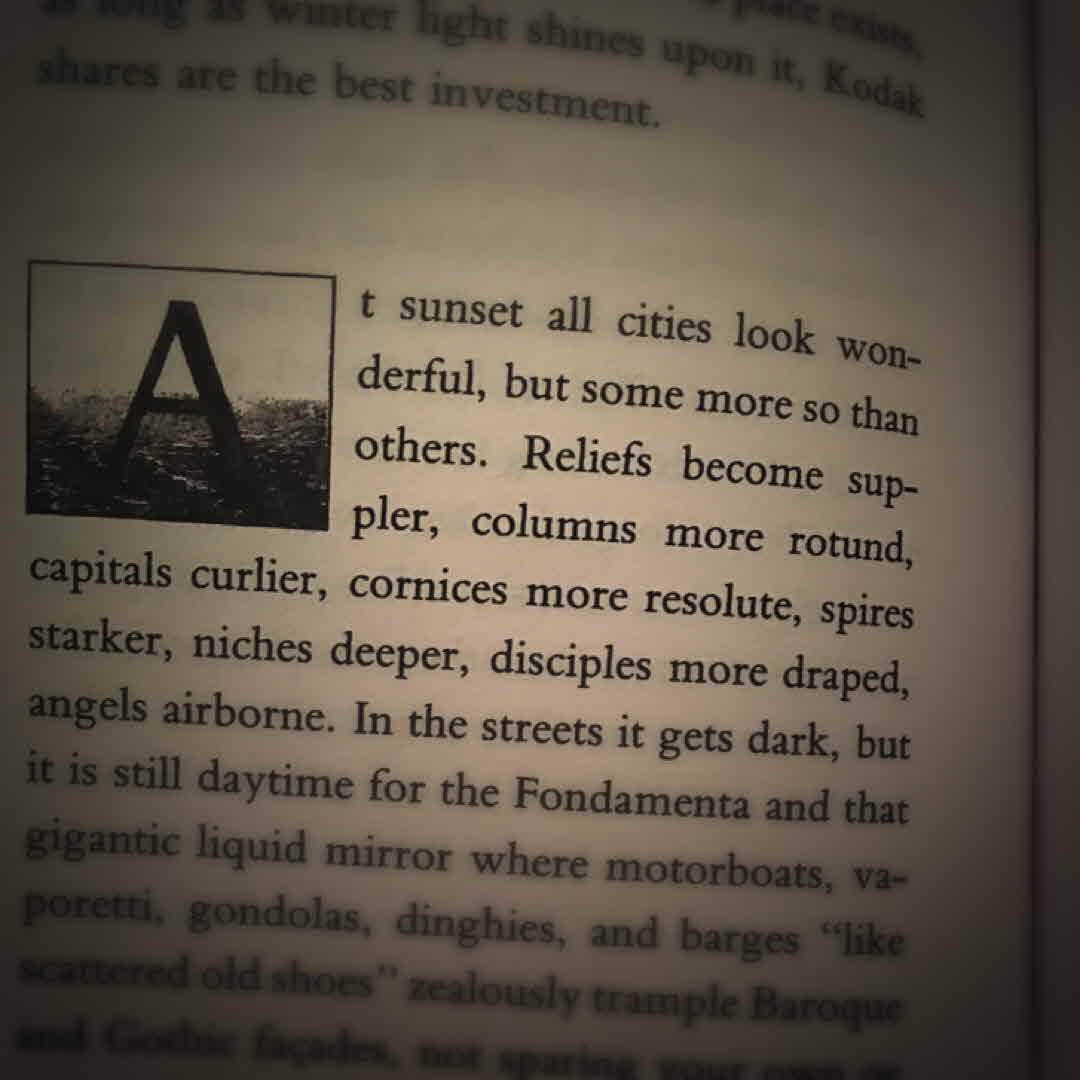
At sunset all cities look wonderful, but some more so than others. Reliefs become suppler, columns more rotund, capitals curlier, cornices more resolute, spires starker, niches deeper, disciples more draped, angels airborne.
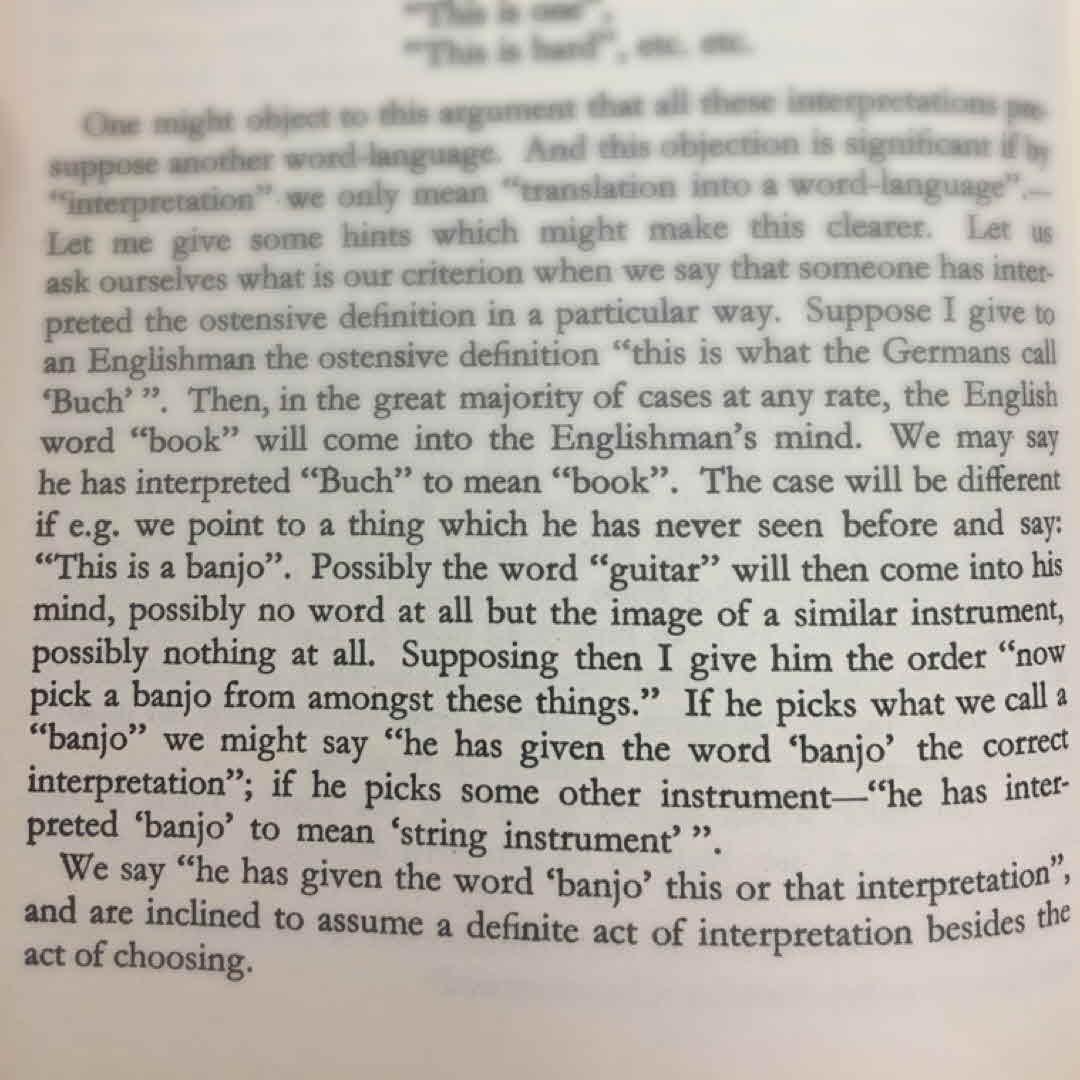
Supposing then I give him the order "now pick a banjo from amongst these things." If he picks what we call a "banjo" we might say "he has given the word 'banjo' the correct interpretation"; if he picks some other instrument – "he has interpreted 'banjo' to mean 'string instrument'".
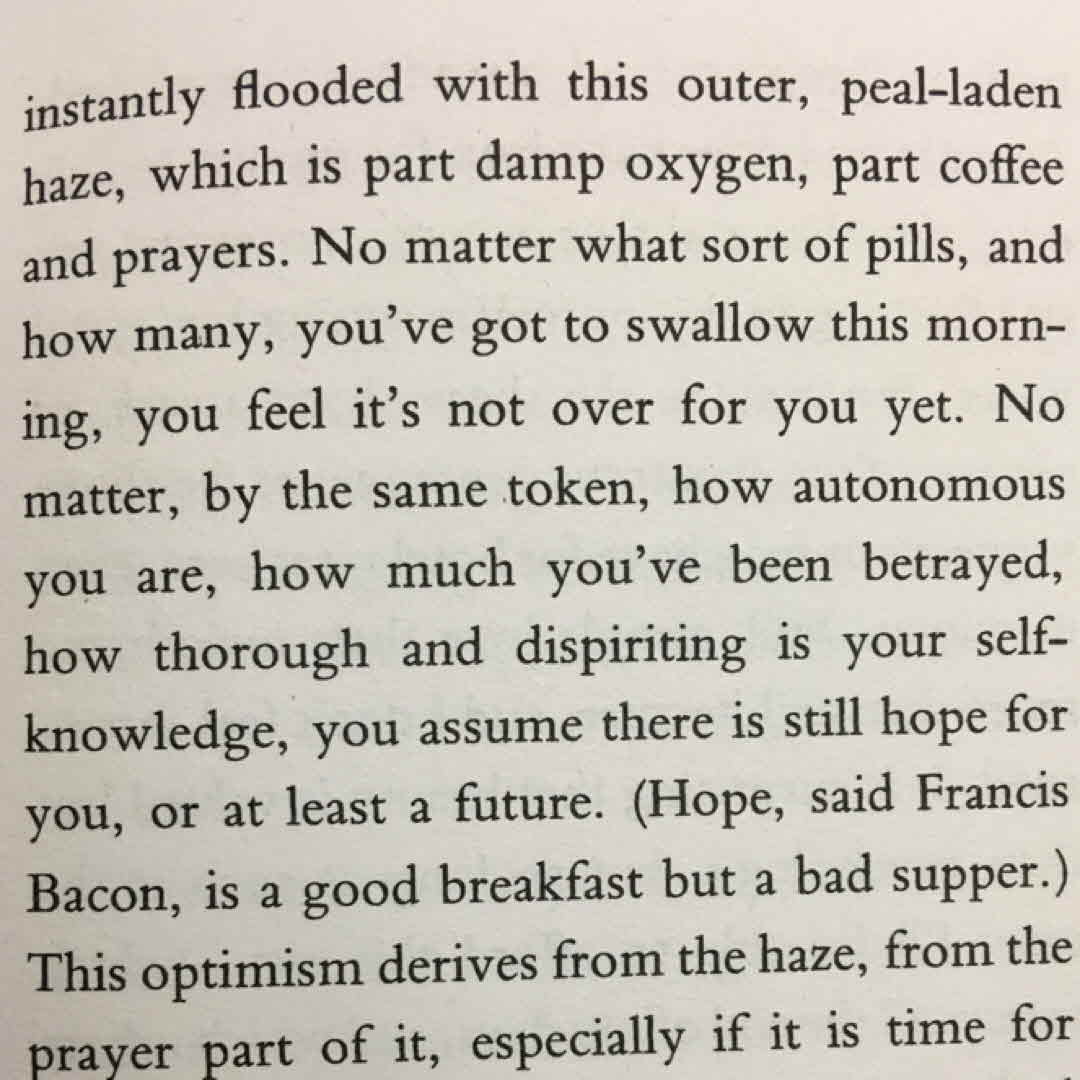
You fling the window open and the room is instantly flooded with this outer, peal-laden haze, which is part damp oxygen, part coffee and prayers. No matter what sort of pills, and how many, you've got to swallow this morning, you feel it's not over for you yet
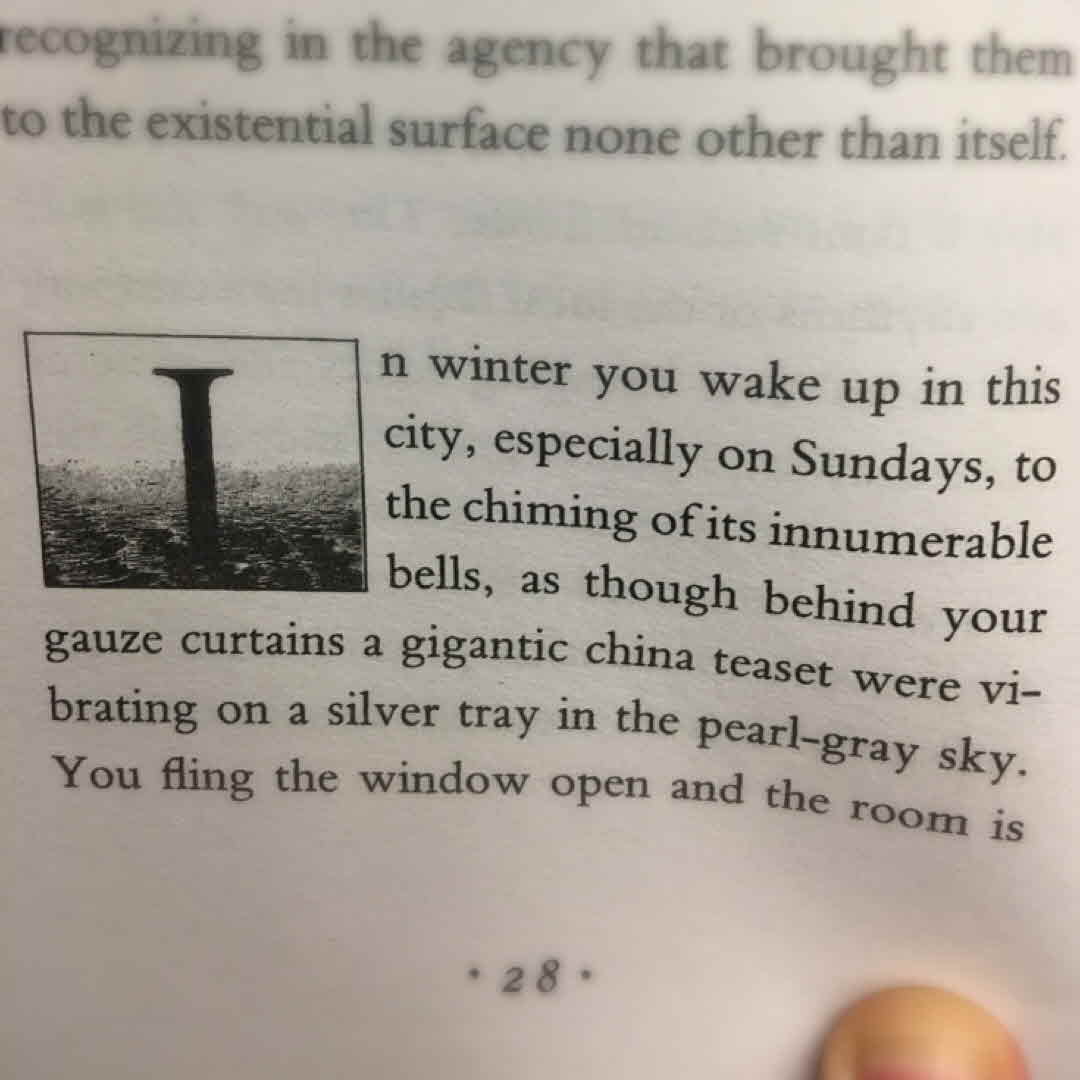
In winter you wake in this city, especially on Sundays, to the chiming of its innumerable bells, as though behind your gauze curtains a gigantic china teaset where vibrating on a silver tray in the pearl-gray sky.
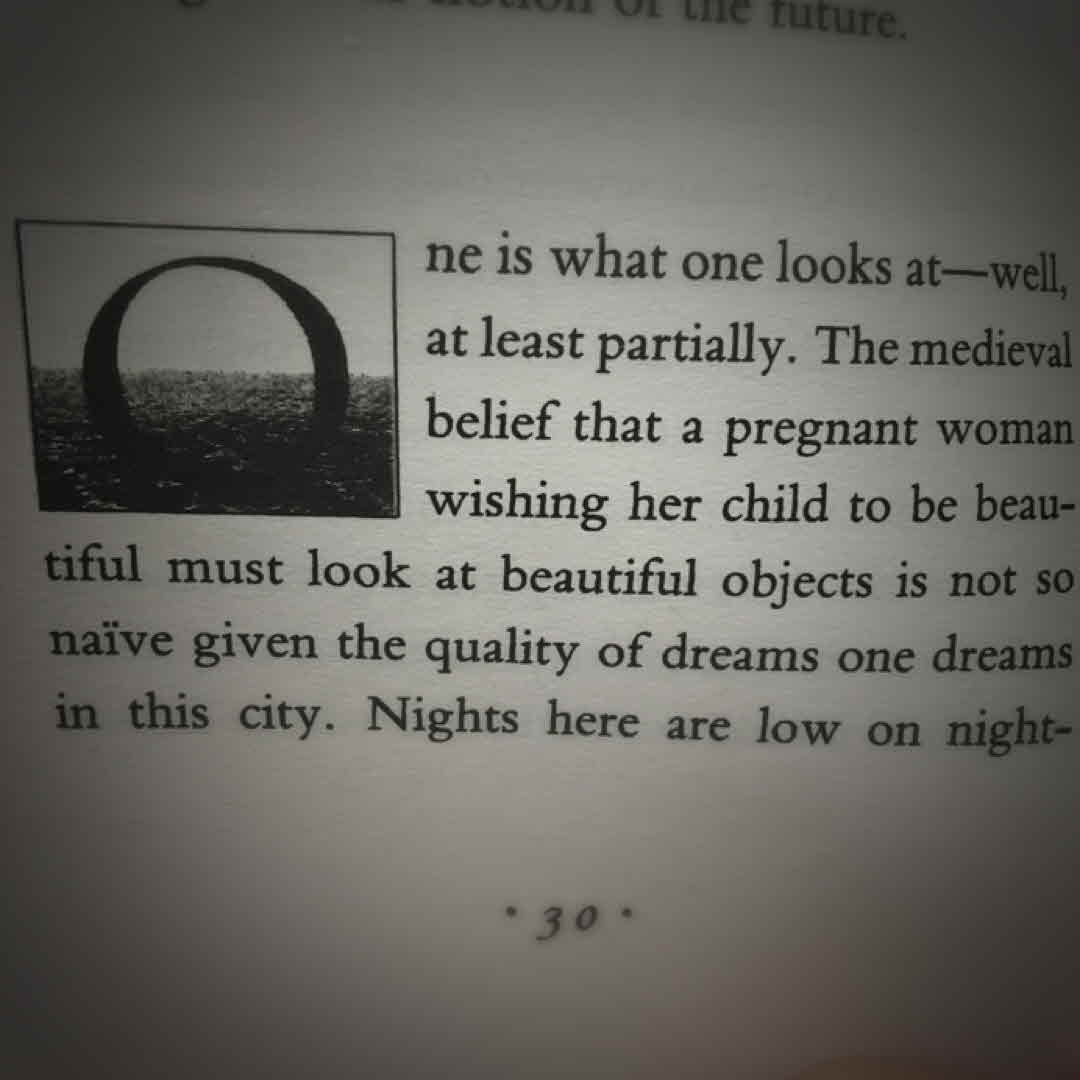
One is the what one looks at – well, at least partially. The medieval belief that a pregnant woman wishing her child to be beautiful must look at beautiful objects is not so naïve given the quality of dreams one dreams it in this city.
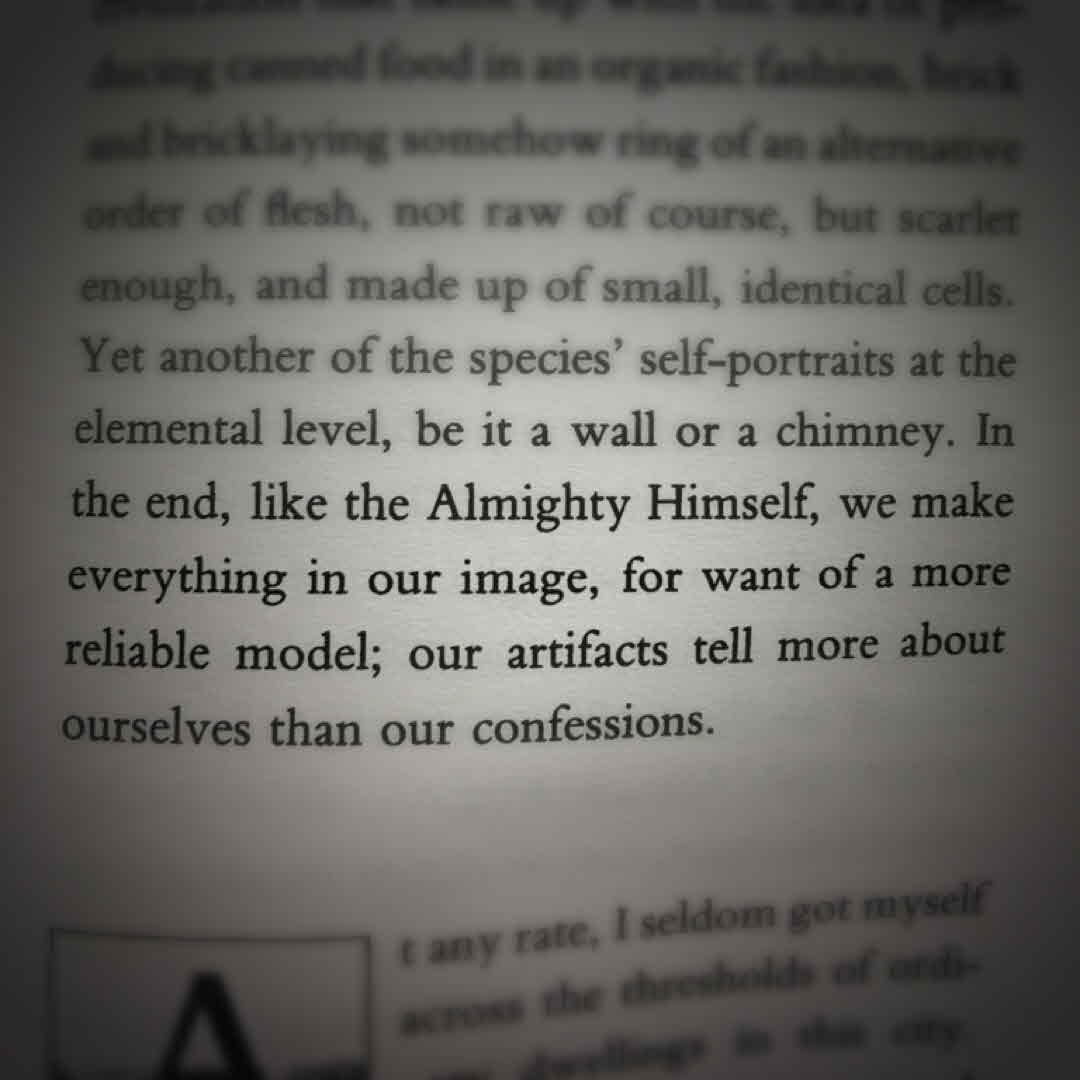
In the end, like the Almighty Himself, we make everything in our image, for want of a more reliable model; our artefacts tell more about ourselves than our confessions.
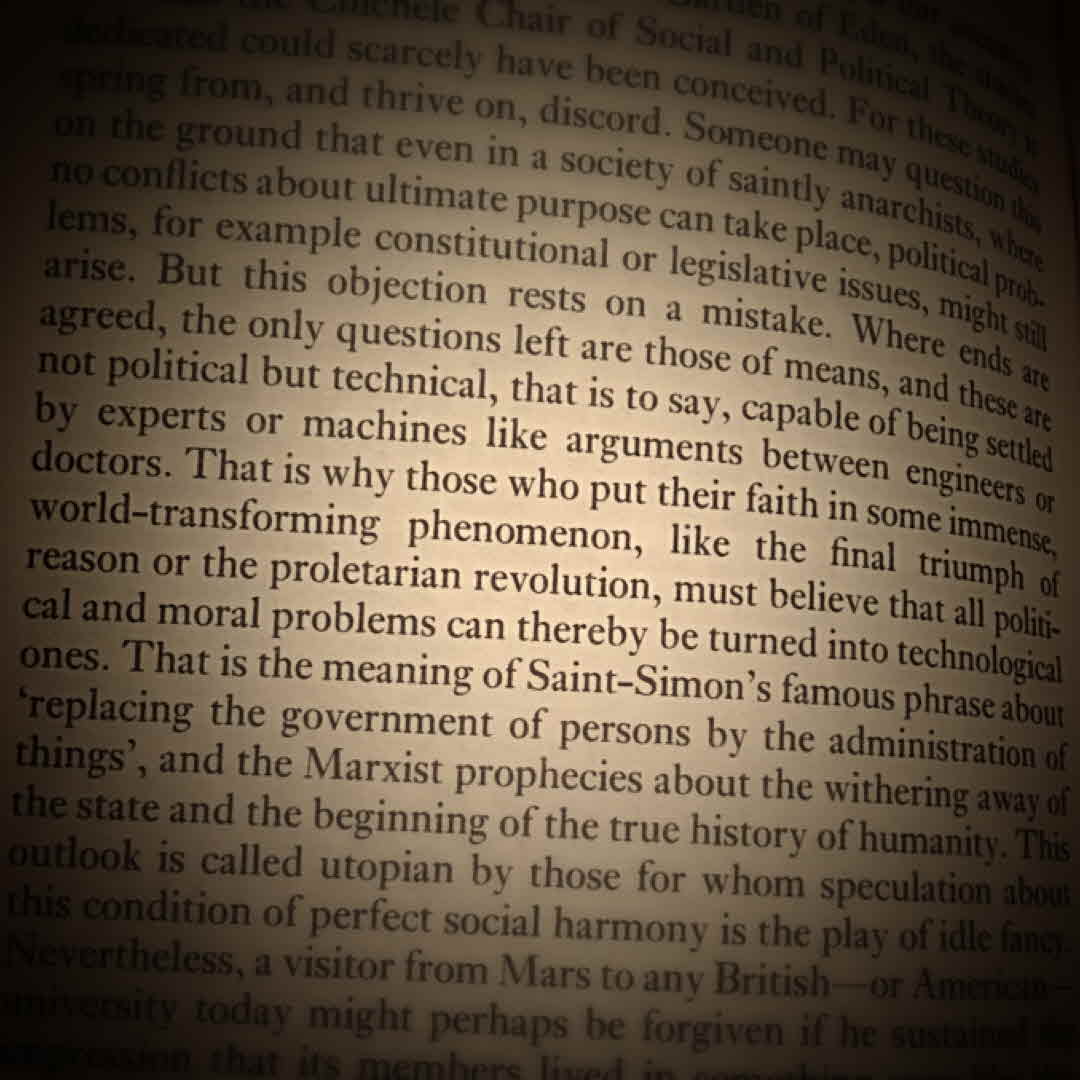
That is why those who put their faith in some immense, world-transforming phenomenon, like the final triumph of reason or the proletarian revolution, must believe that all political and moral problems can thereby be turned into technological ones.
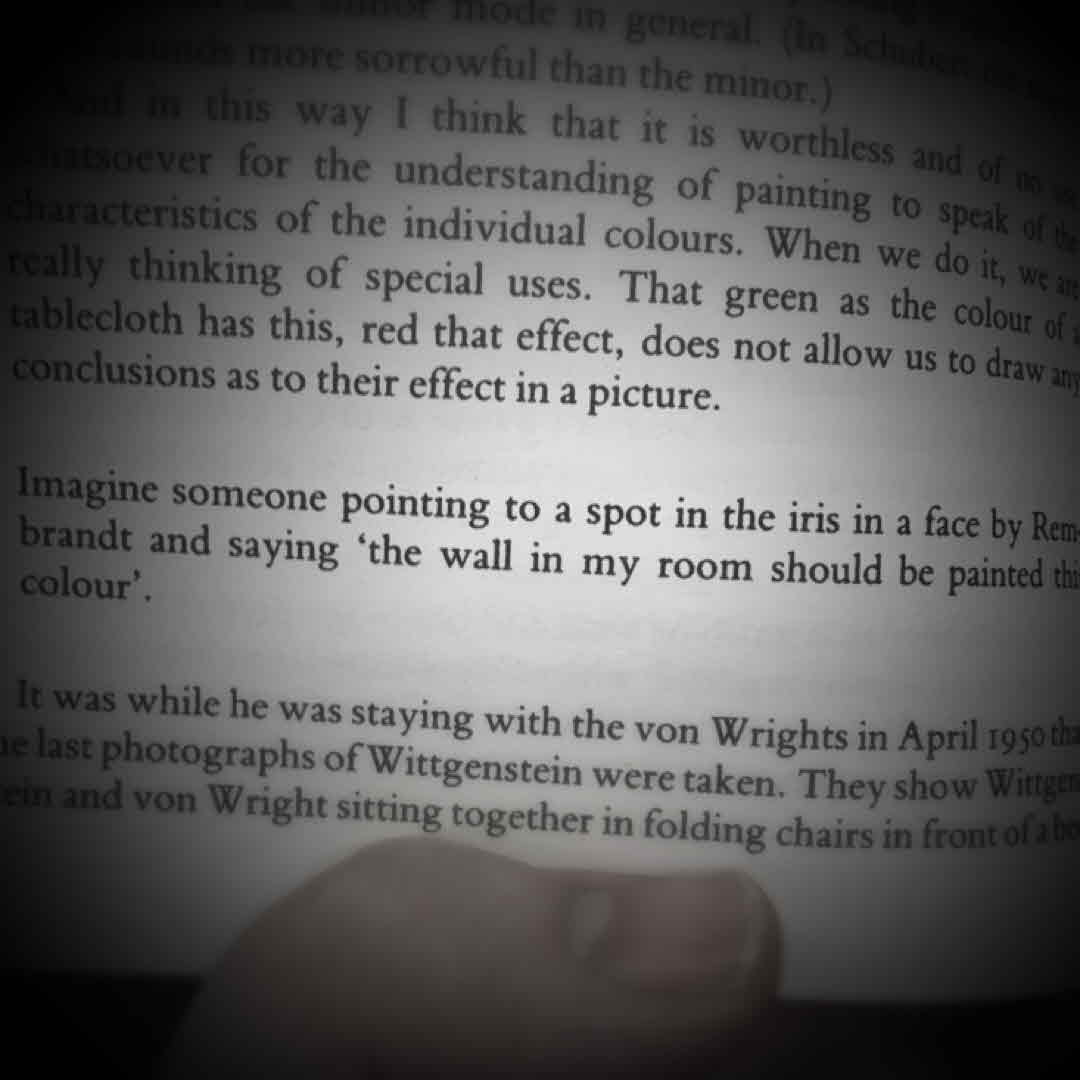
Imagine someone pointing to a spot on the iris in a face by Rembrandt and saying 'the wall in my room should be painted this colour.'
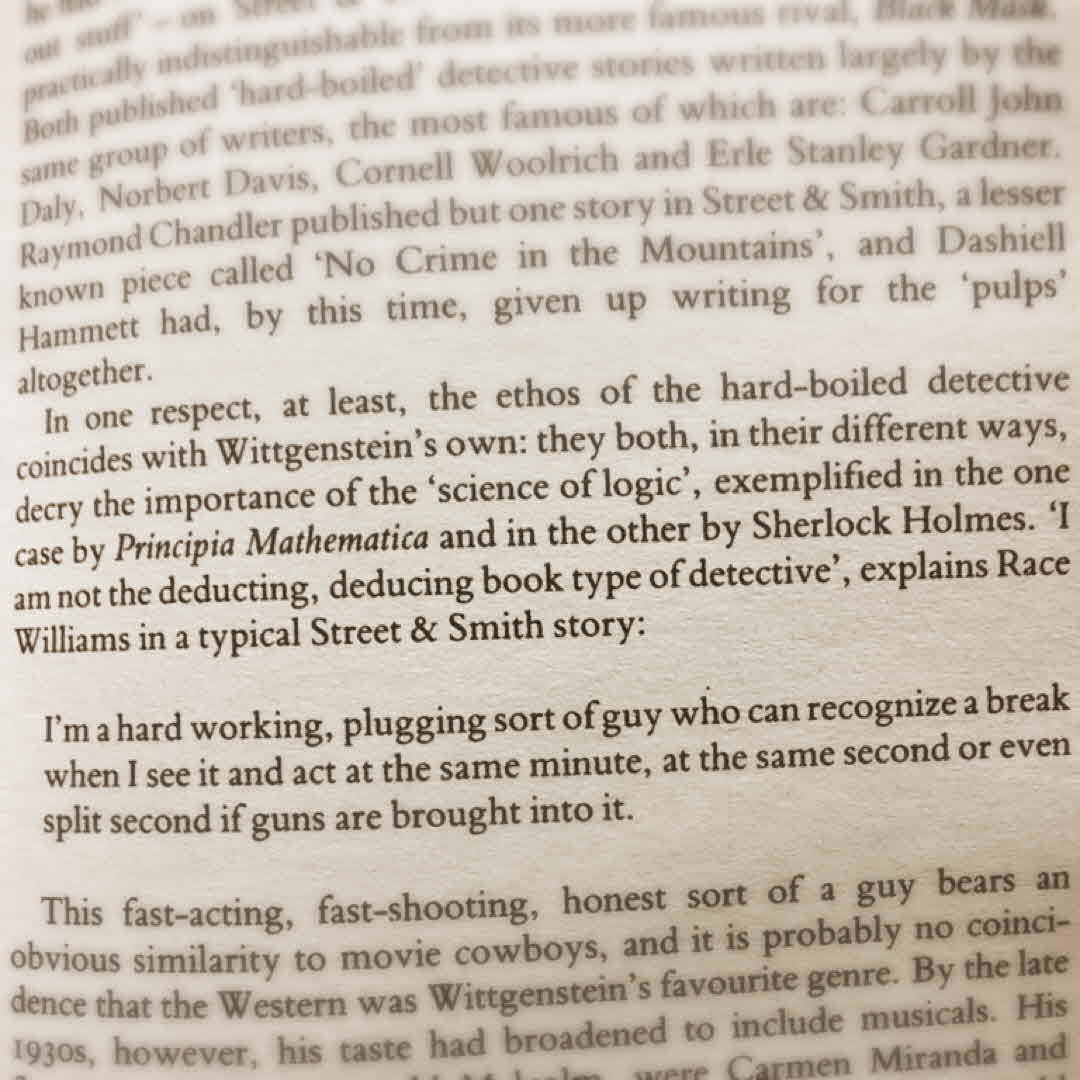
In one respect, at least, the ethos of the hard-boiled detective coincides with Wittgenstein's own: they both, in their different ways, decry the importance of their "science of logic", exemplified in the one case by Principia Mathematica and in the other by Sherlock Holmes.
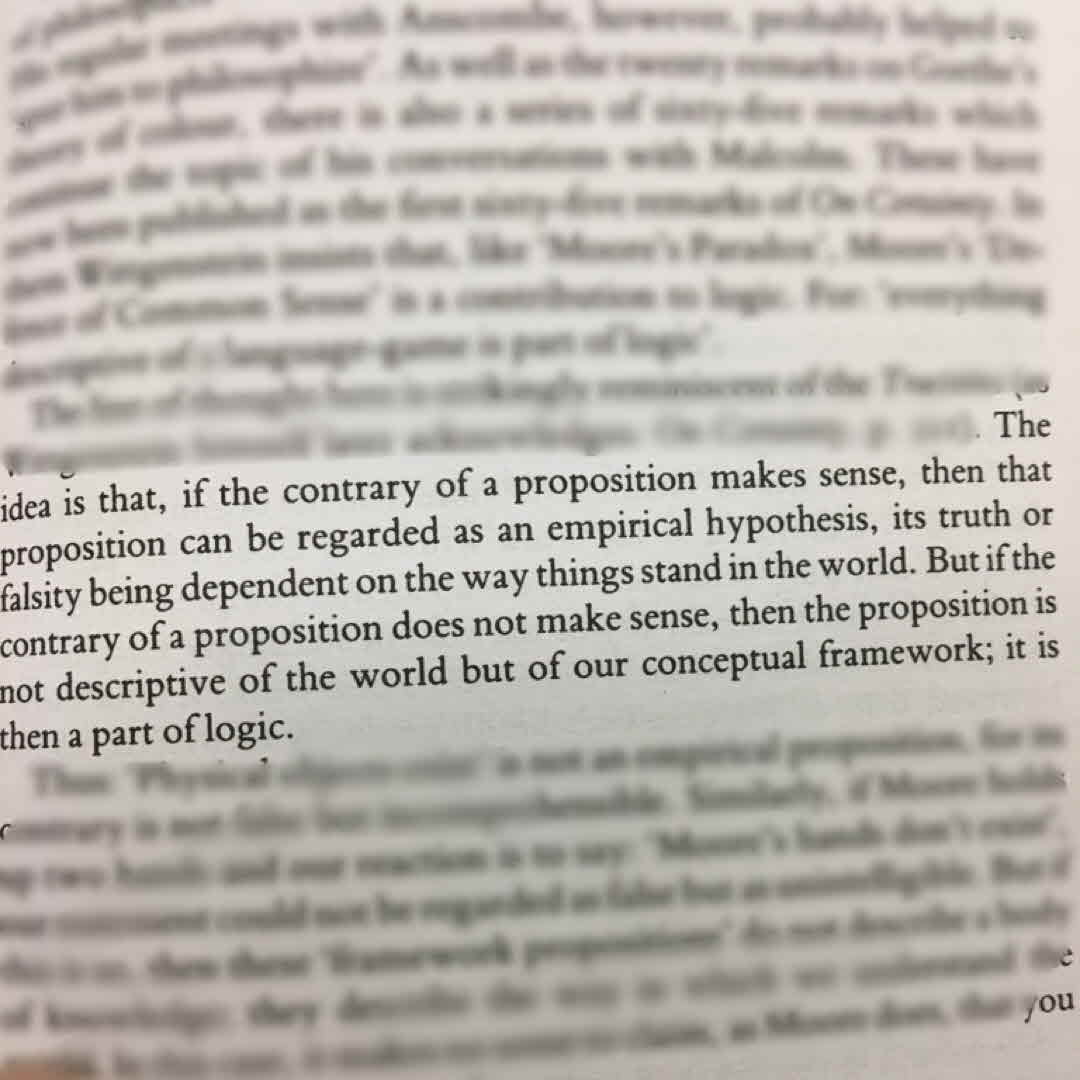
The idea is that, if the contrary of a proposition makes sense, then that proposition can be regarded as an empirical hypothesis, its truth or falsehood being dependent on the way things stand in the world.
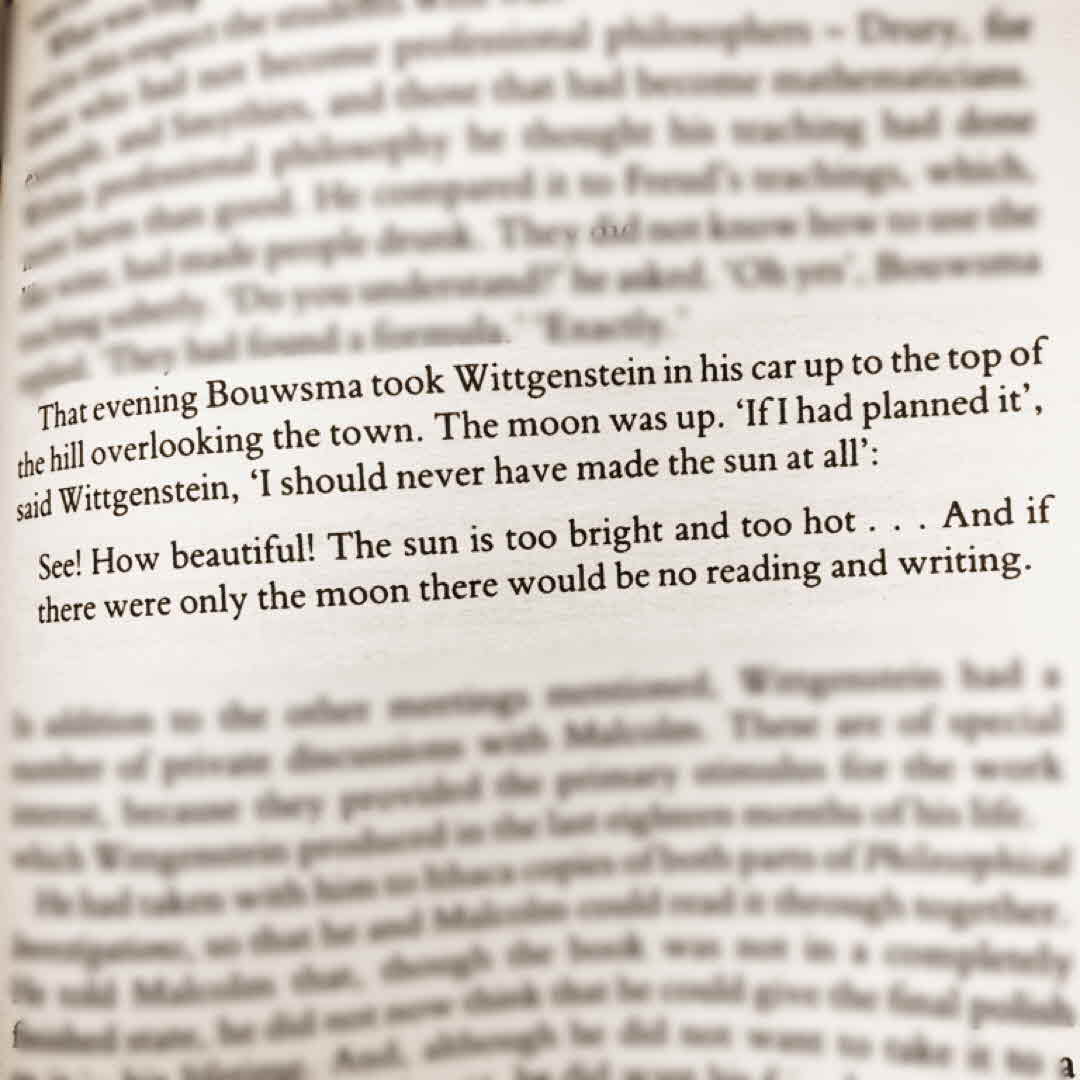
The moon was up. "If I had planned it", said Wittgenstein, "I should never have made the sun at all"
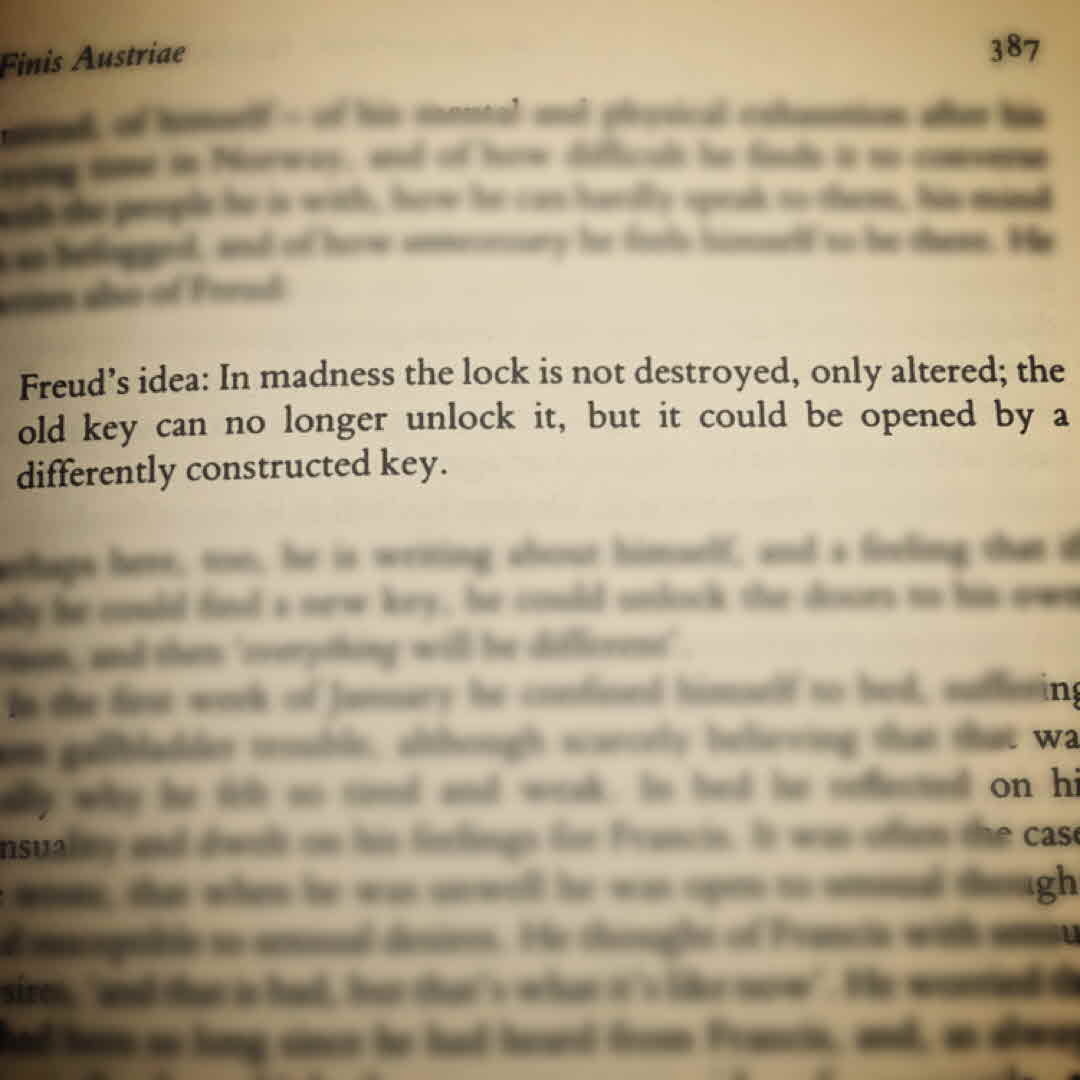
Freud's idea: in madness the lock is not destroyed, only altered; the old key can no longer unlock it, but it could be opened by a differently constructed key.
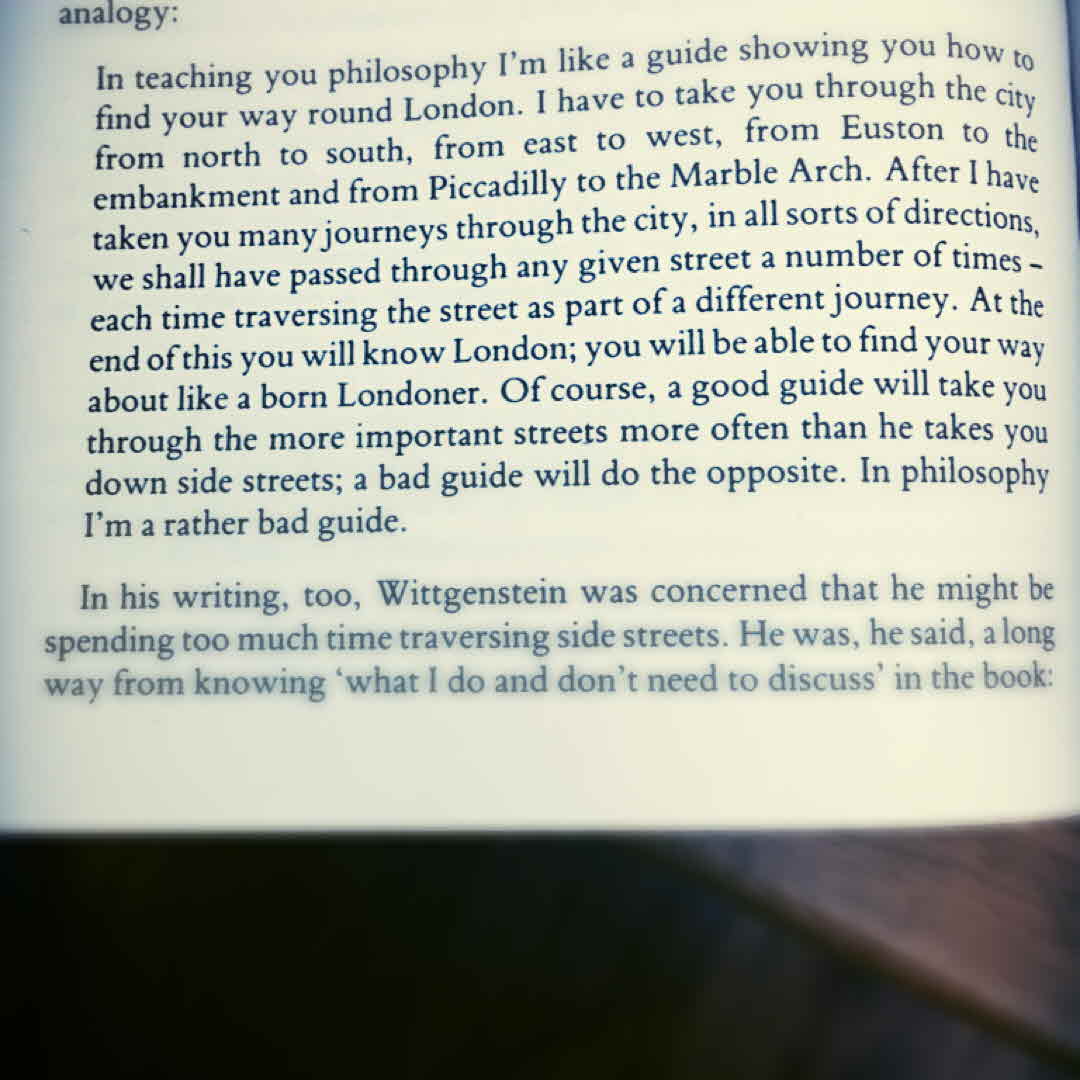
In teaching you philosophy I am like a guide showing you how to find your way around London. I have to take you through the city from north to south, from east to west, from Euston to the embankment and from Picadilly to the Marble Arch.